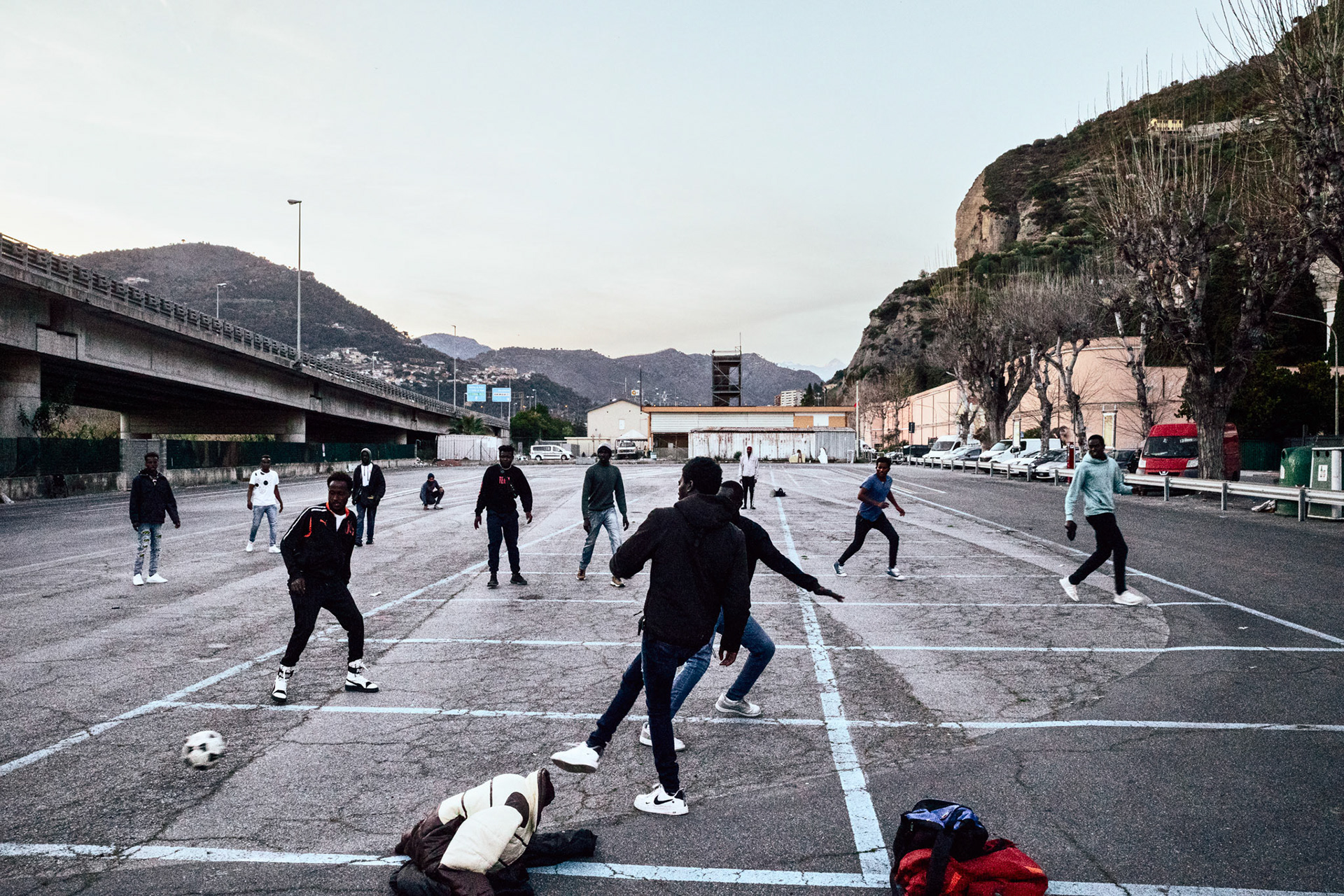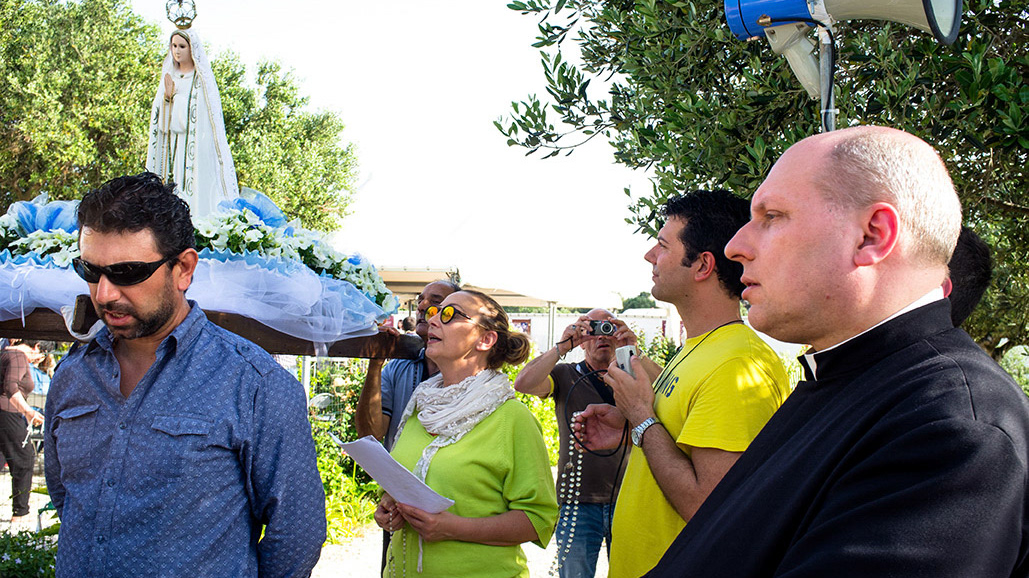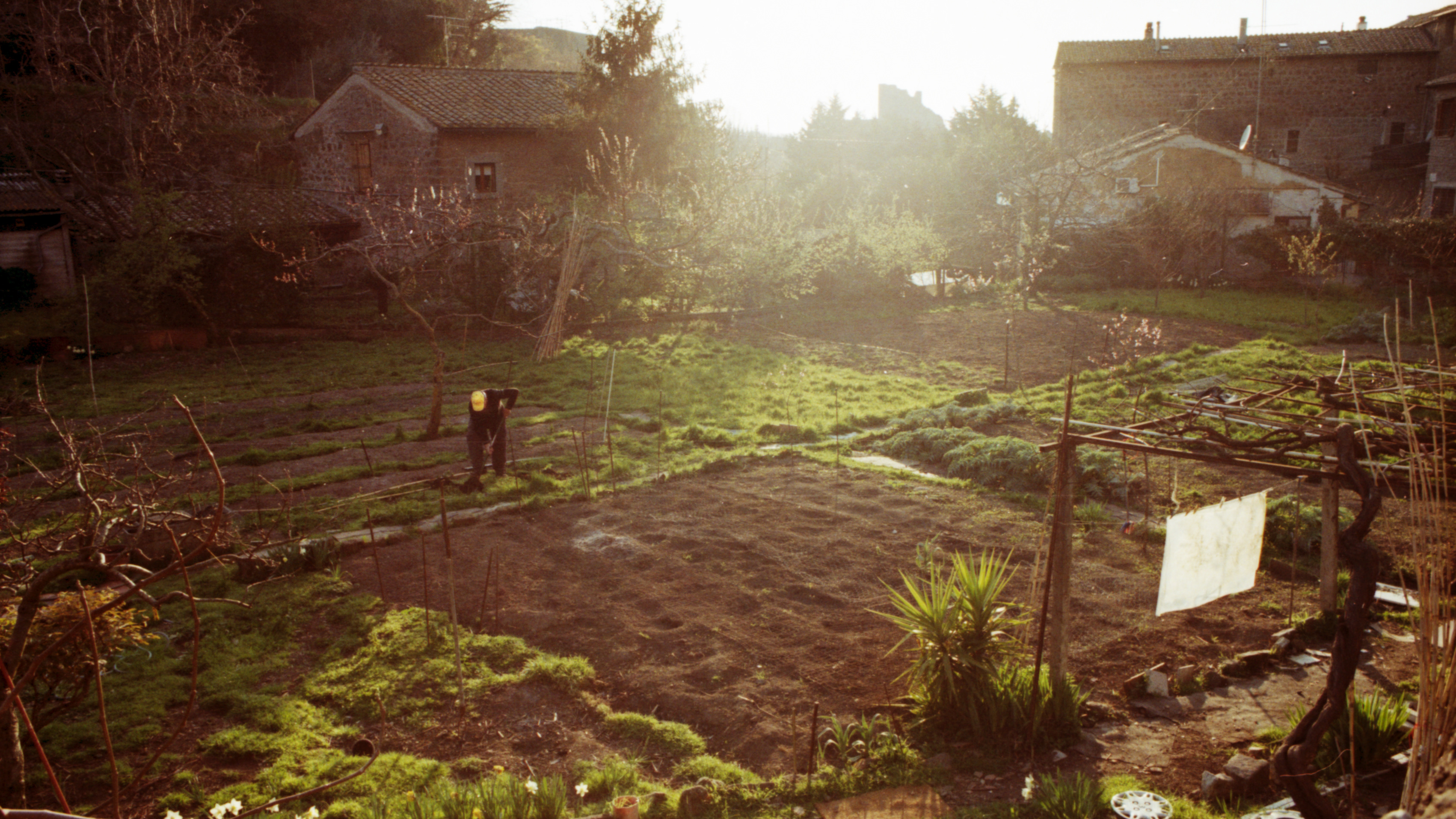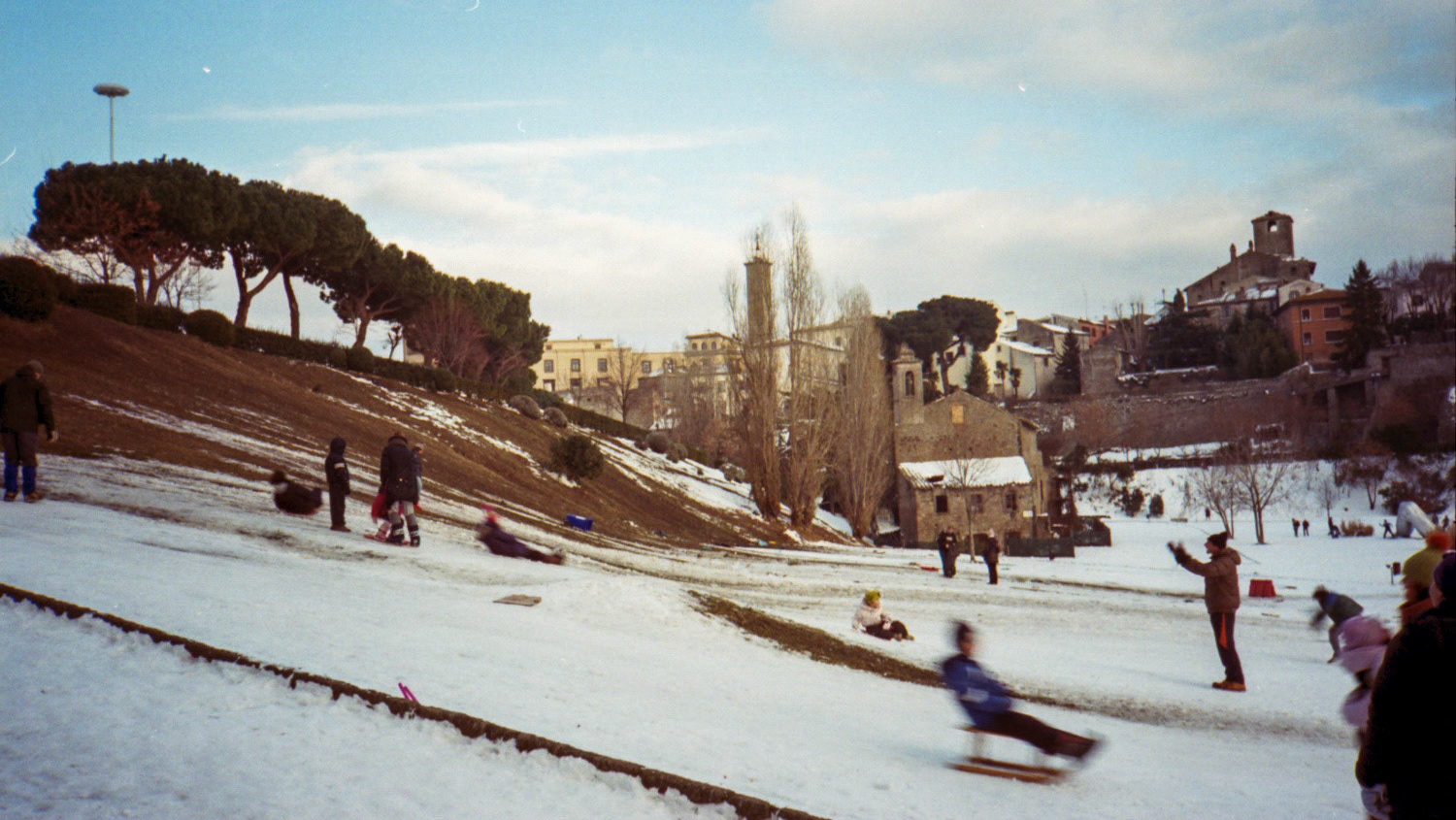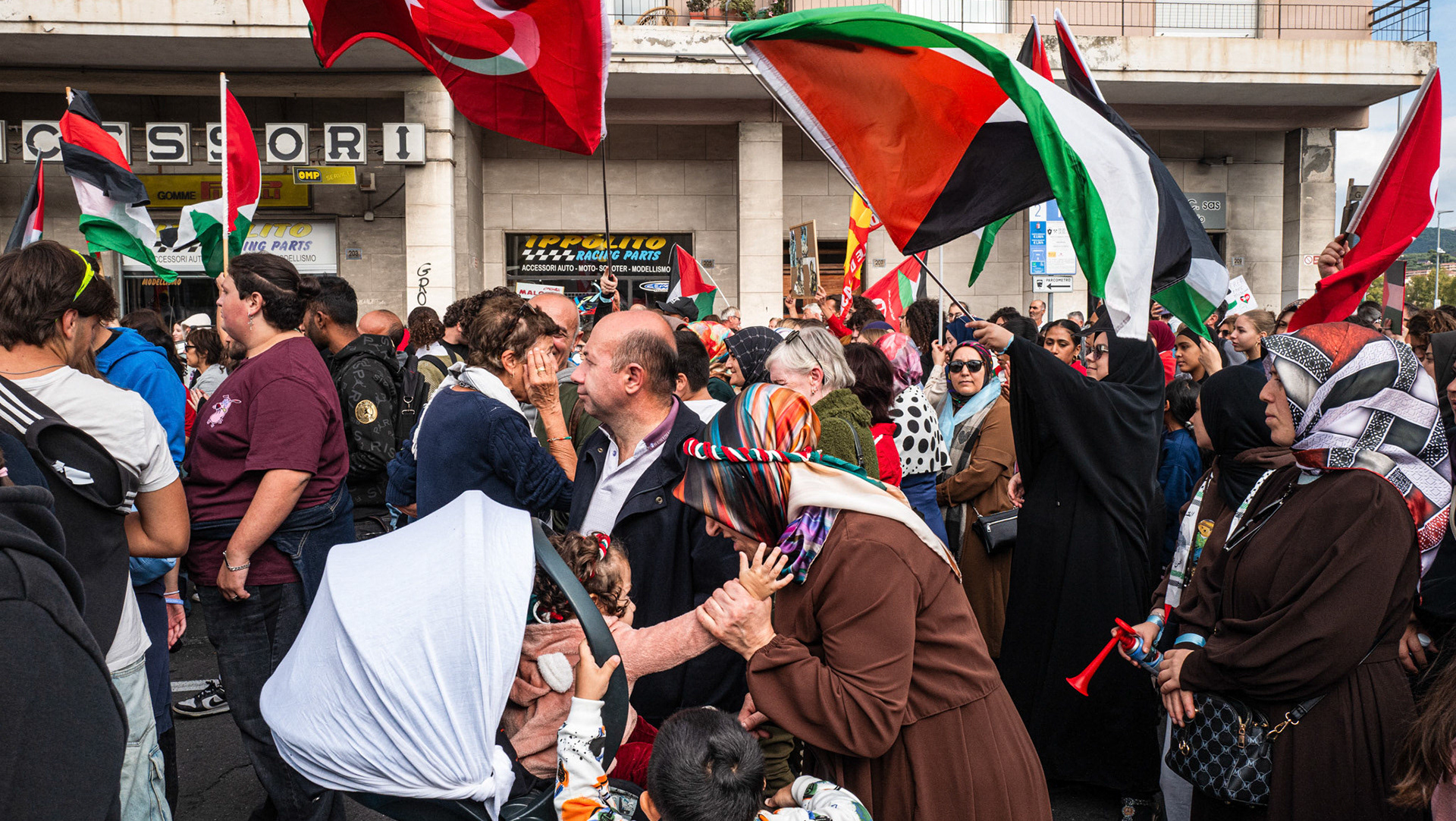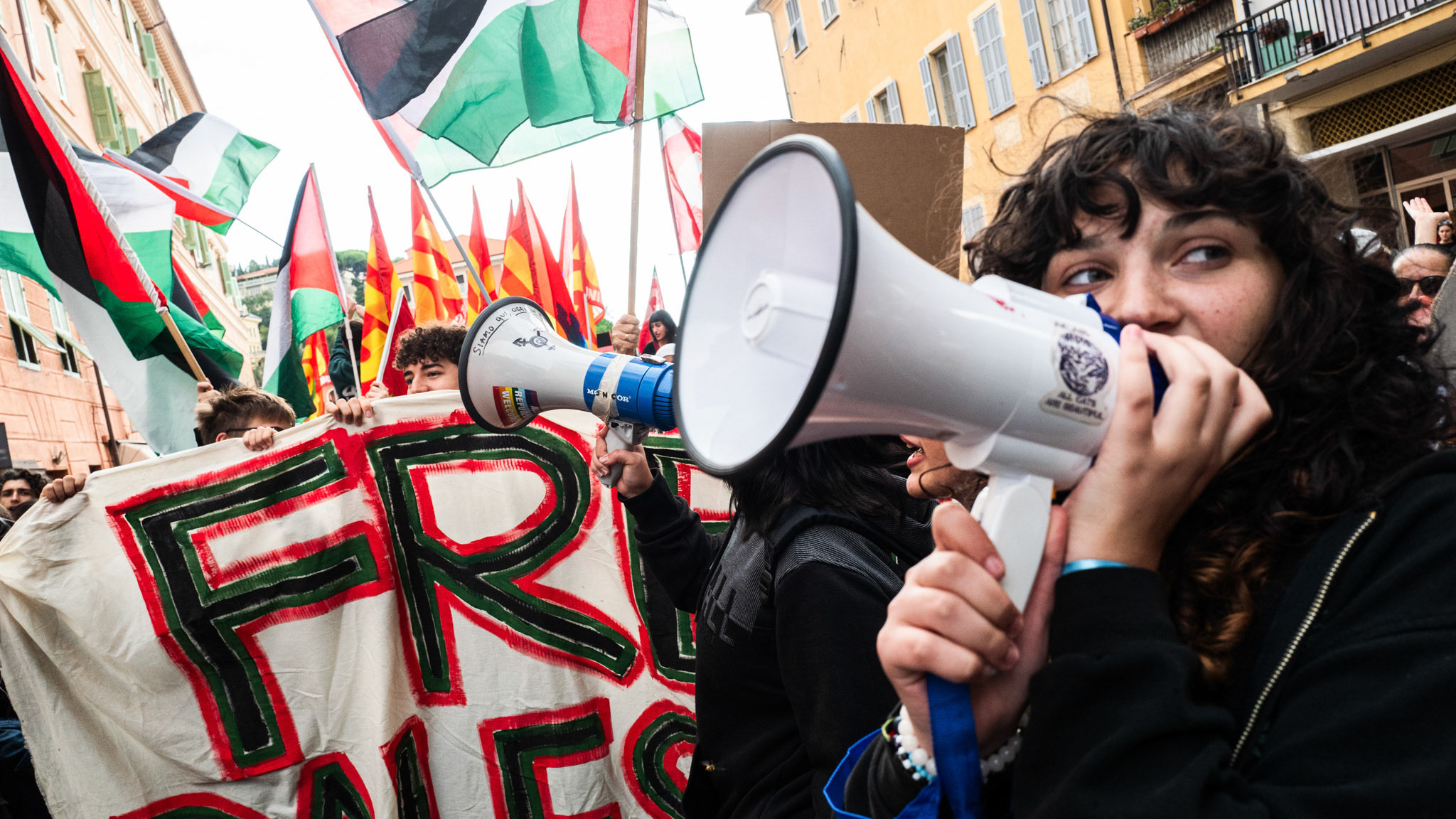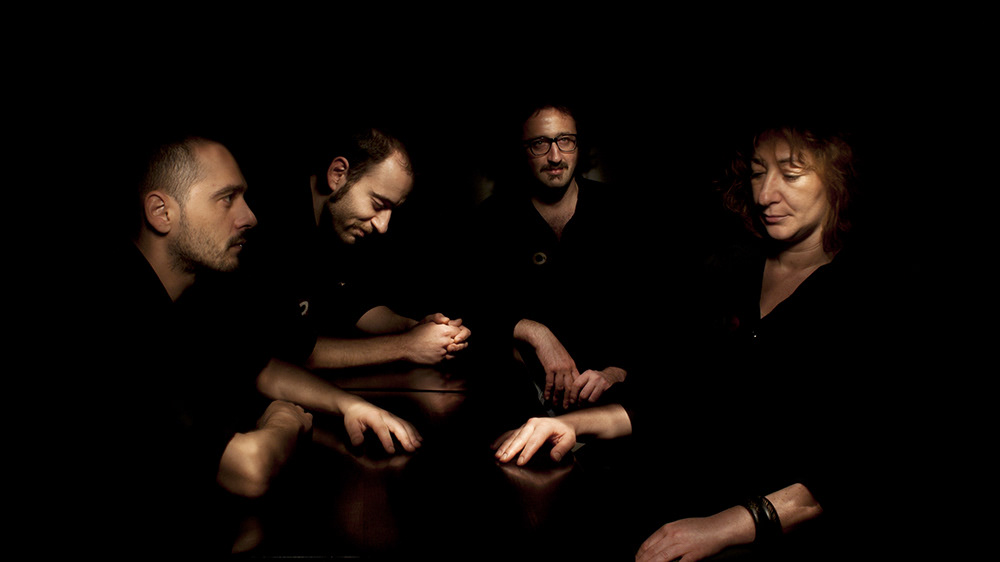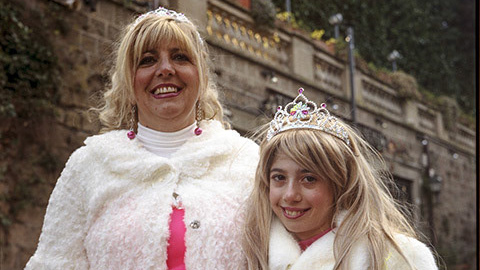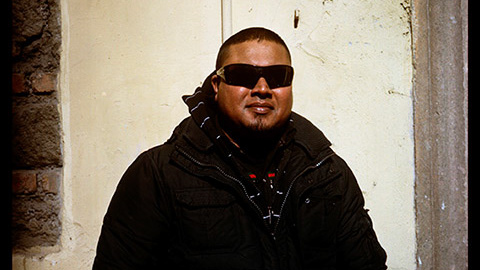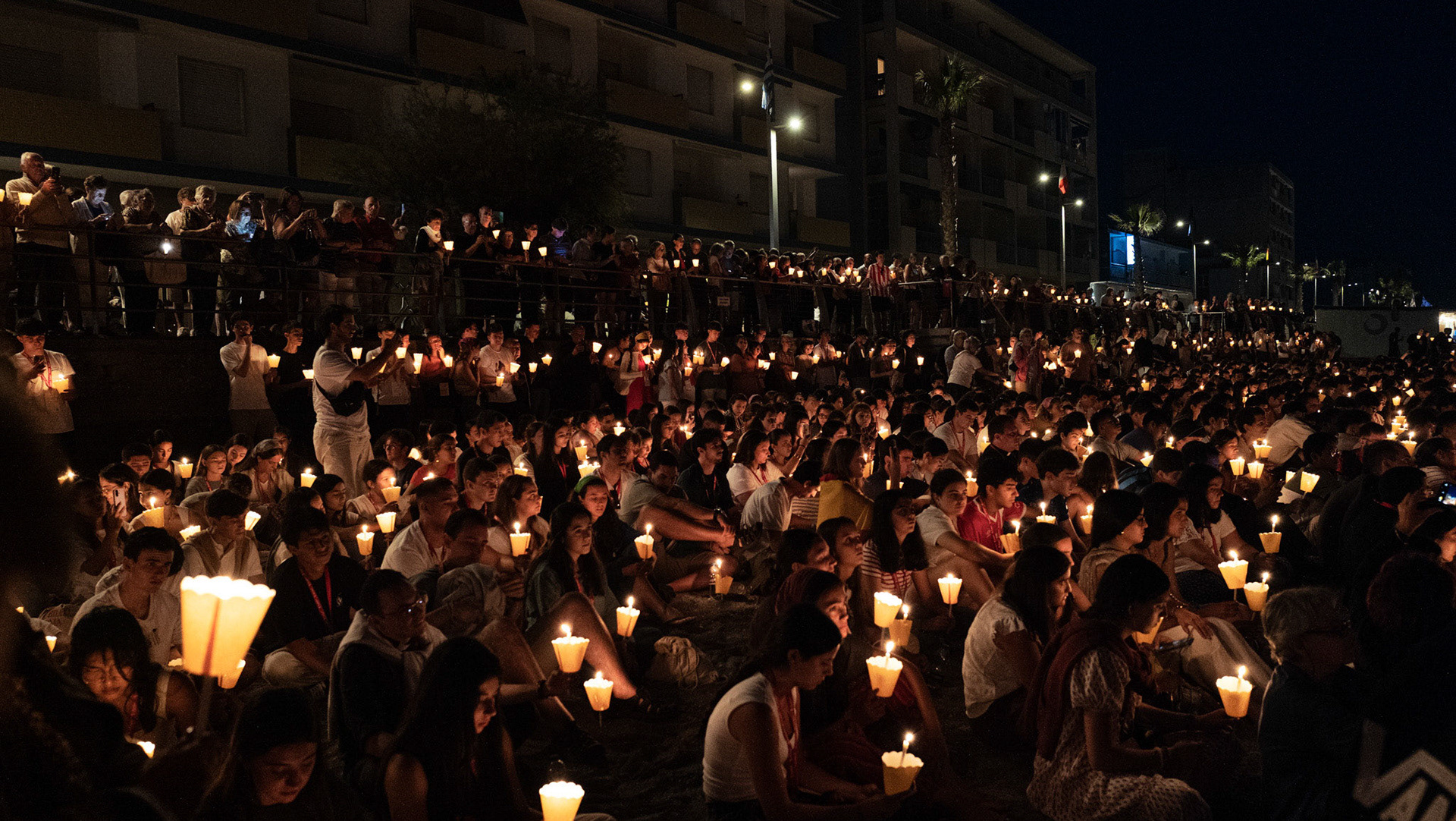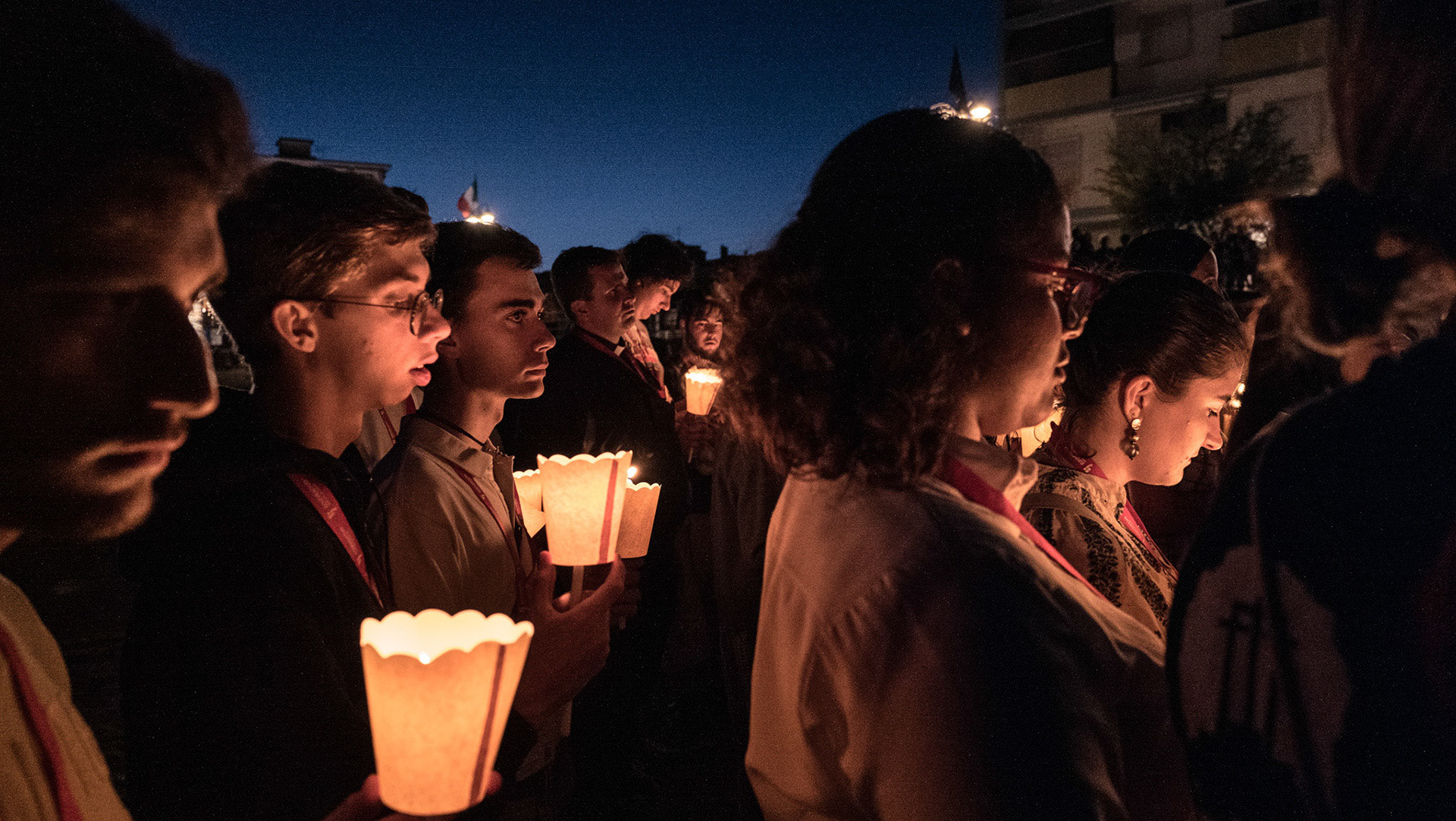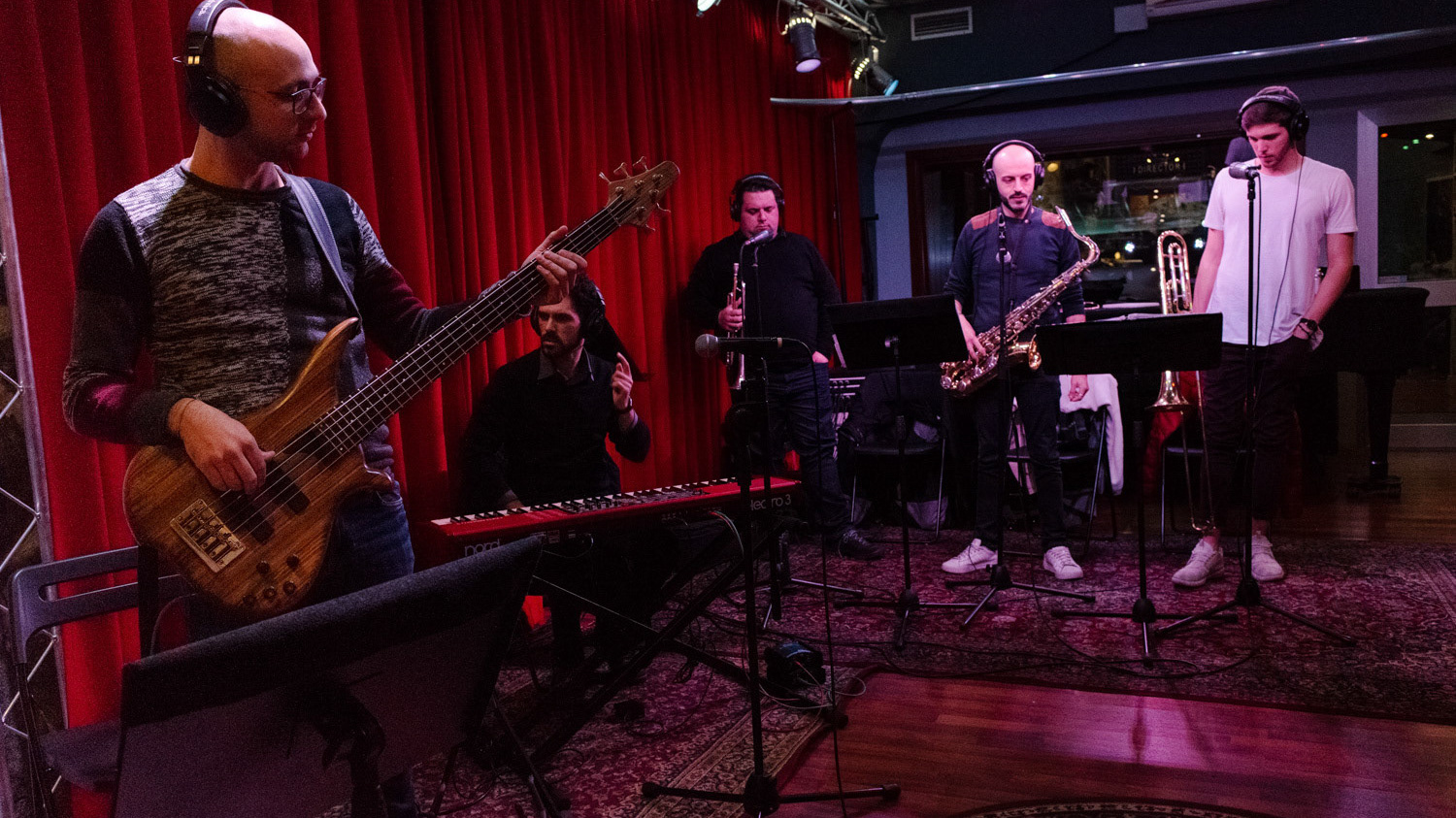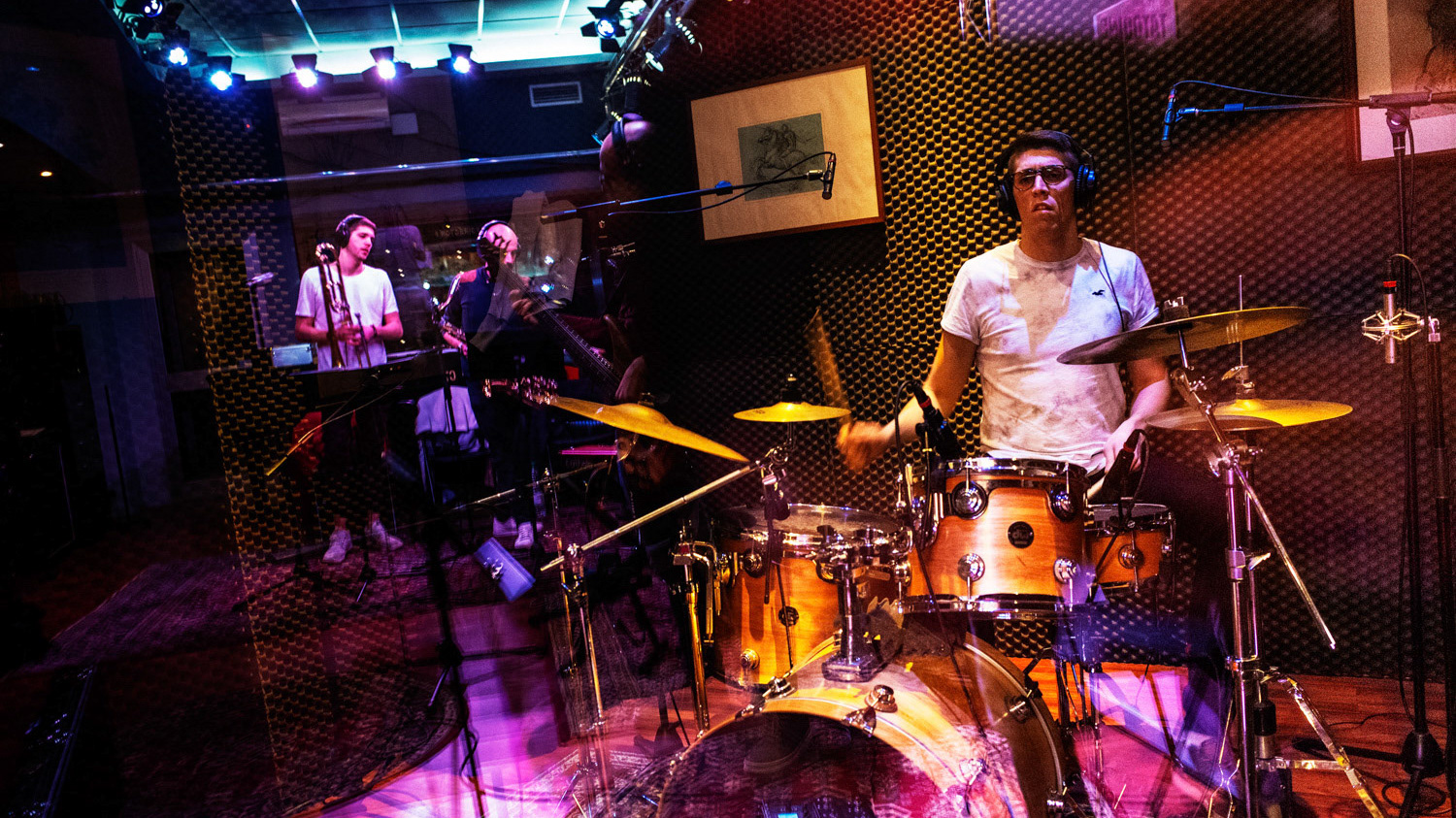This story is set in Ventimiglia, a border town between Italy and France. Albintimilium is its Roman name, it is a place rich in history, with its prehistoric caves of the Balzi Rossi, its Roman theatre, the ancient walls that protect the historic centre, the second largest in Liguria after that of Genoa.
Today, after millennia of conquests and vicissitudes, history continues to be written.
Today, after millennia of conquests and vicissitudes, history continues to be written.
This is the story of people who have no name, who do not exist. They arrive in Italy without any documents, clandestine and therefore illegal. My project started in mid-February 2023 and ended in October of the same year. I live a few kilometers from Ventimiglia and almost every day I went to the border town. To enter into the situation and get closer to these people I went through Caritas Intemelia which has been facing a decidedly complex situation for years now. In 2015, France effectively withdrew from the Schengen treaty which ensured free movement between European states, restoring the borders and the resulting controls. For now, only unaccompanied minors could cross the border "freely". Because this would be the aim of those who find themselves in Ventimiglia, to cross the invisible line that would allow them to reunite with relatives and friends in France, England or Germany.
Then there are the people who live in Ventimiglia, some for years, people who have traveled around Europe, Sweden, Denmark, Germany, France and who have arrived or returned to Ventimiglia to join their fellow villagers, as is the case of the community Somali, very united but with major integration problems. They live on the street, some stay in Imperia during the day and come to Ventimiglia for dinner in front of the cemetery. Almost all of them have big problems with alcohol and almost all of them seem not to want to integrate, they are in Italy but rarely speak Italian, sometimes they have been kicked out of Germany because they are alcoholics. They live by their wits and petty thefts, scraped together in the Lidl car park. They are very young, sometimes they disappear for a while, looking for something that perhaps doesn't exist for them, and then return to the border town, aware of finding a small community willing to welcome them anyway.
Regarding these people, continuing to define them as migrants could be a terminological abuse that is harmful to them. Generalizing their condition with that of people in transit is a mistake, pretending that they don't exist could cause serious social problems in the long term. Life on the streets is difficult, the marks on their bodies are proof of this. Cuts from bottle glass, swollen lips, broken bones, knocked out teeth are commonplace in Ventimiglia. In addition to the obvious mental problems caused by the continuous stress of a life always on the edge. When can a migrant be considered homeless?
Regarding these people, continuing to define them as migrants could be a terminological abuse that is harmful to them. Generalizing their condition with that of people in transit is a mistake, pretending that they don't exist could cause serious social problems in the long term. Life on the streets is difficult, the marks on their bodies are proof of this. Cuts from bottle glass, swollen lips, broken bones, knocked out teeth are commonplace in Ventimiglia. In addition to the obvious mental problems caused by the continuous stress of a life always on the edge. When can a migrant be considered homeless?
A humanitarian crisis is underway in Italy.
This work has become a travelling exhibition, as it is part of the "Mosaico di Frontiera" project, funded by the Compagnia di San Paolo Foundation and implemented by Caritas Intemelia, Diaconia Valdese, WeWorld Onlus, Janua Forum and Popoli in Arte, in partnership with the Municipality of Ventimiglia.
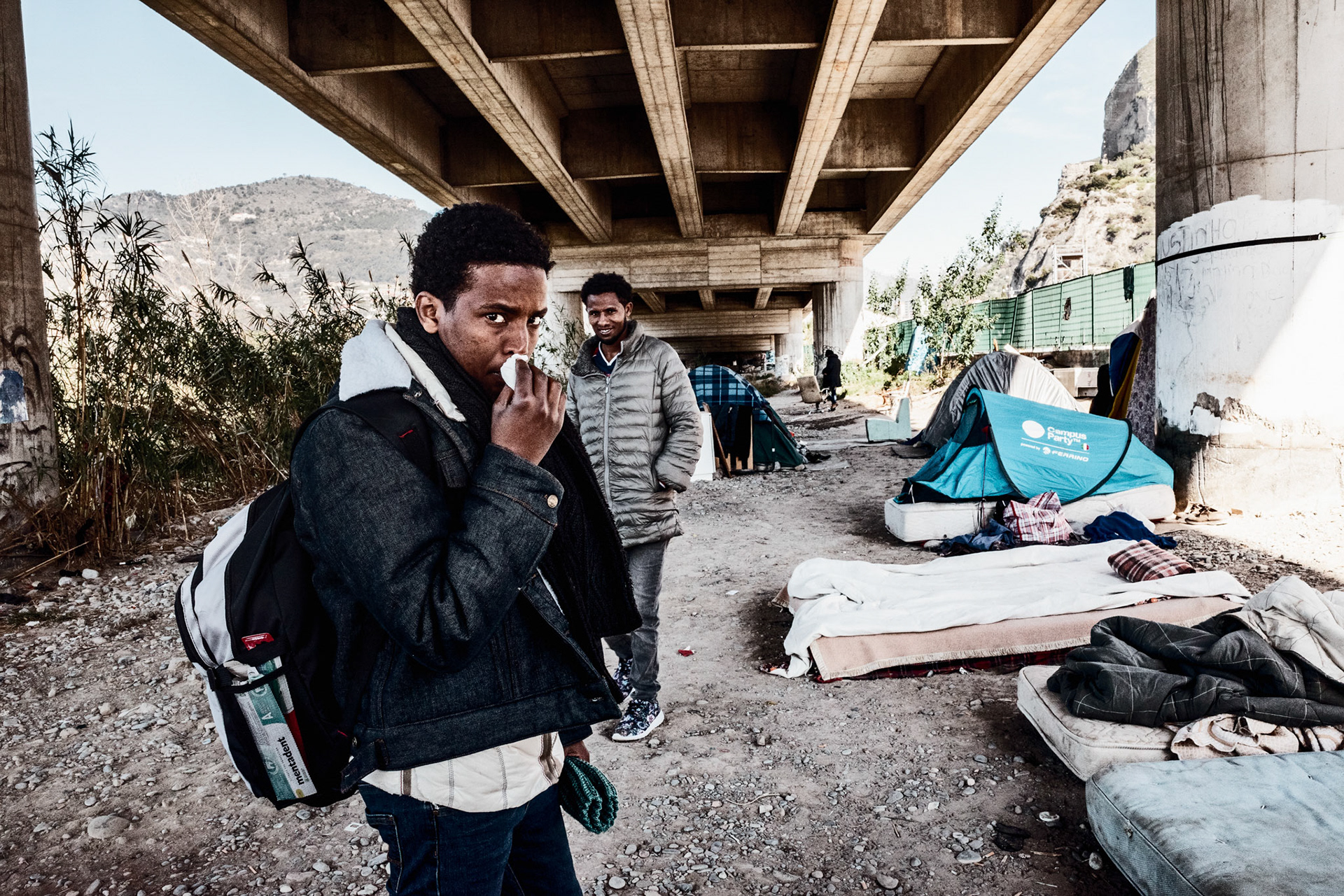
These Eritrean boys spent about four nights sleeping on these mattresses. They did not speak Italian, French or English, not even Arabic, only Tigrinya. They arrived in Ventimiglia with scabies, but after a medical examination and a shower in Caritas' dispensary, their condition thereafter improved and they were able to leave.
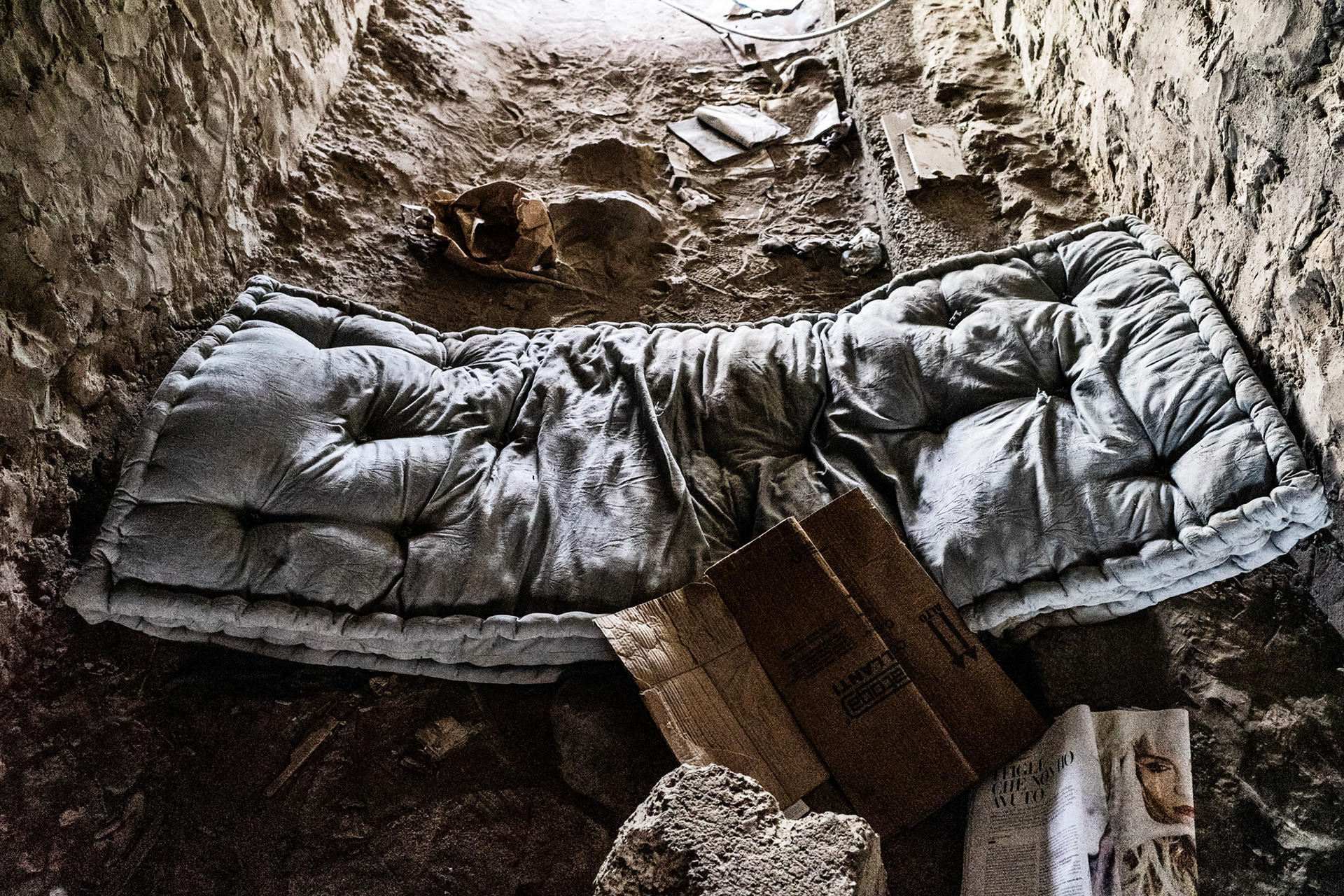
A makeshift bed in one of the tunnels inside the French-Italian railway bridge.
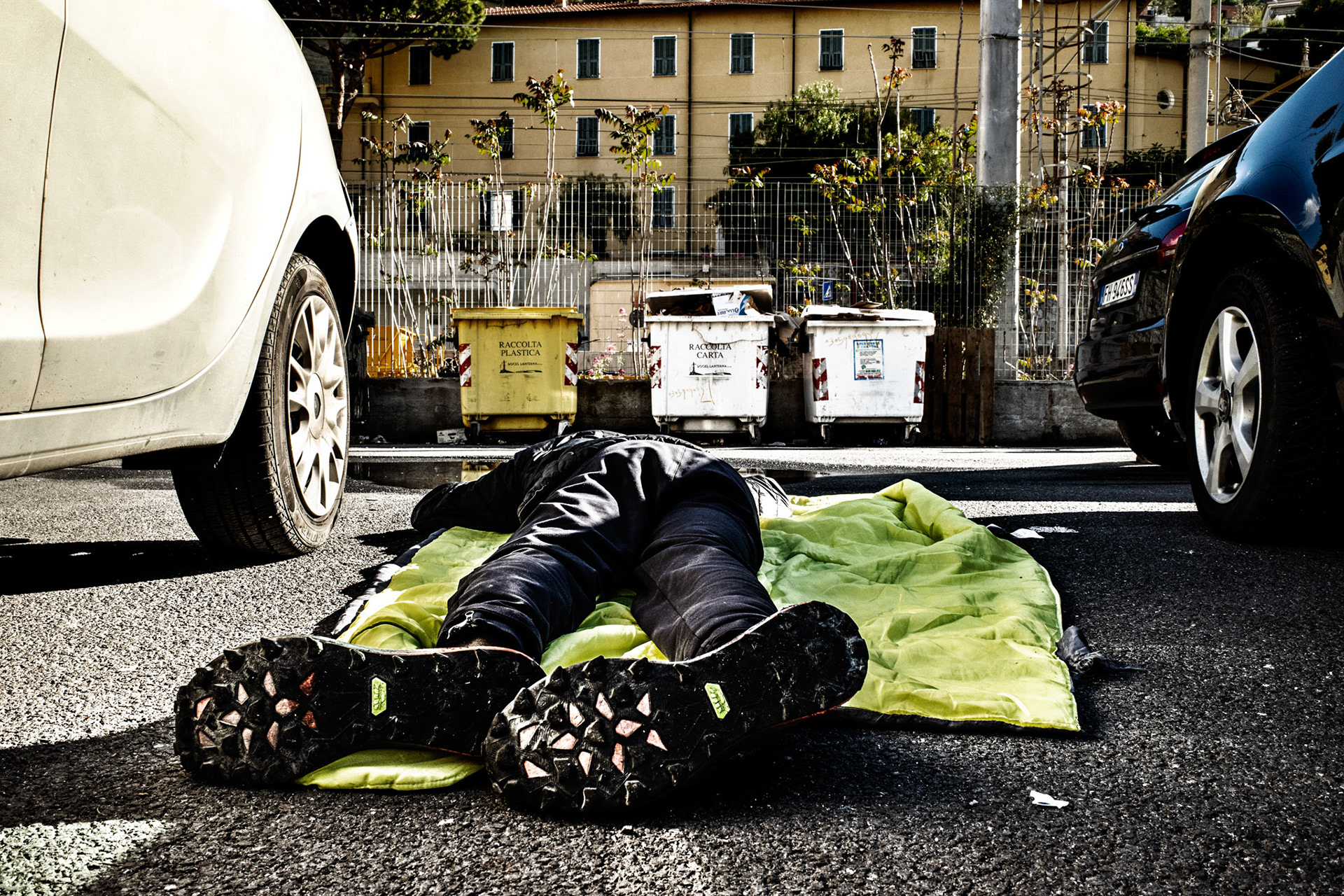
A young Somali spent the night sleeping between some parked cars. As is often the case with people of this nationality (Somalia is a country plagued by decades of conflict and instability) he subsequently wandered off to other countries.
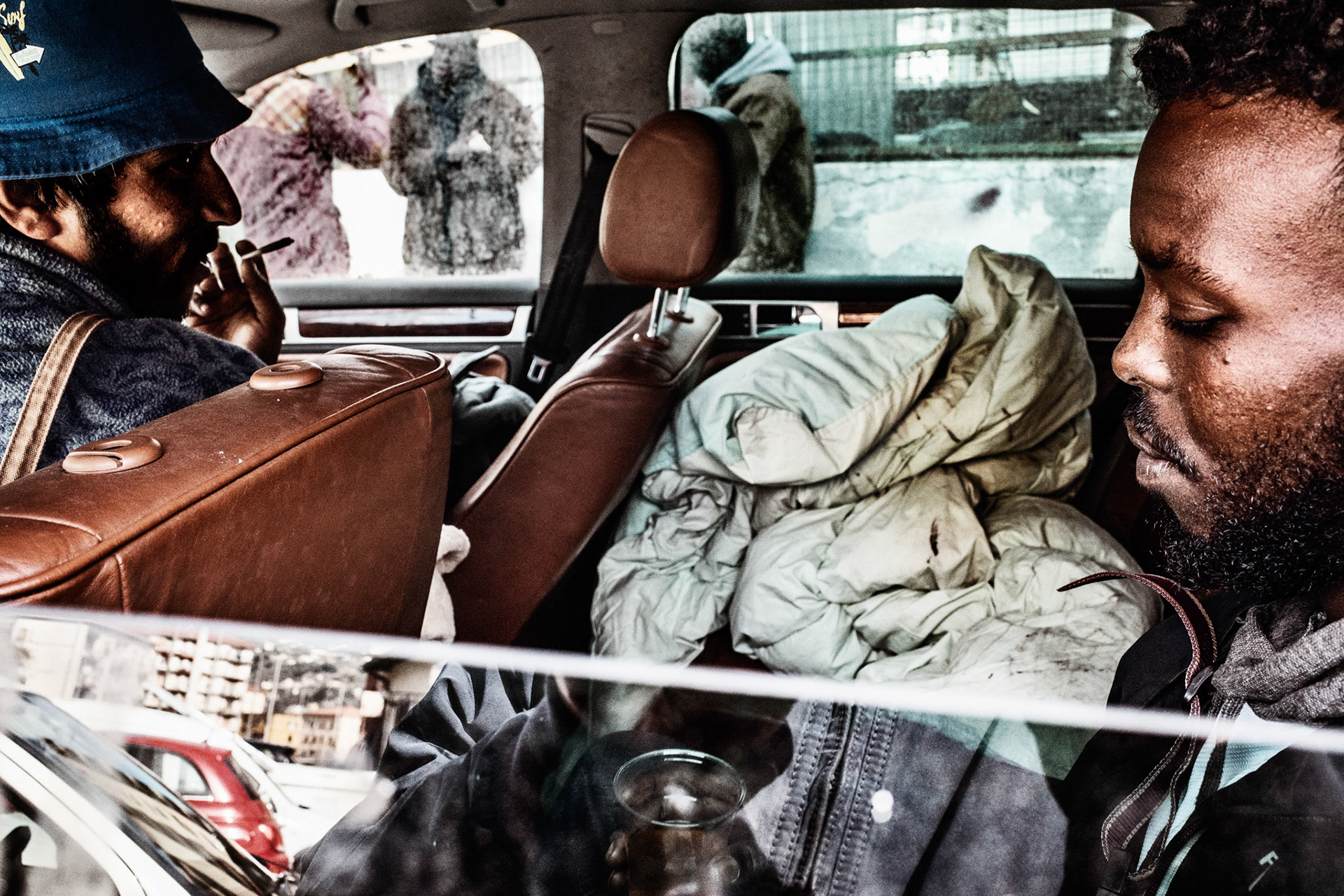
These two homeless men, Pakistani and Somali are smoking and drinking tea in a large abandoned car turned into a shelter where they spent many cold nights, an unhealthy shelter with an acrid smell
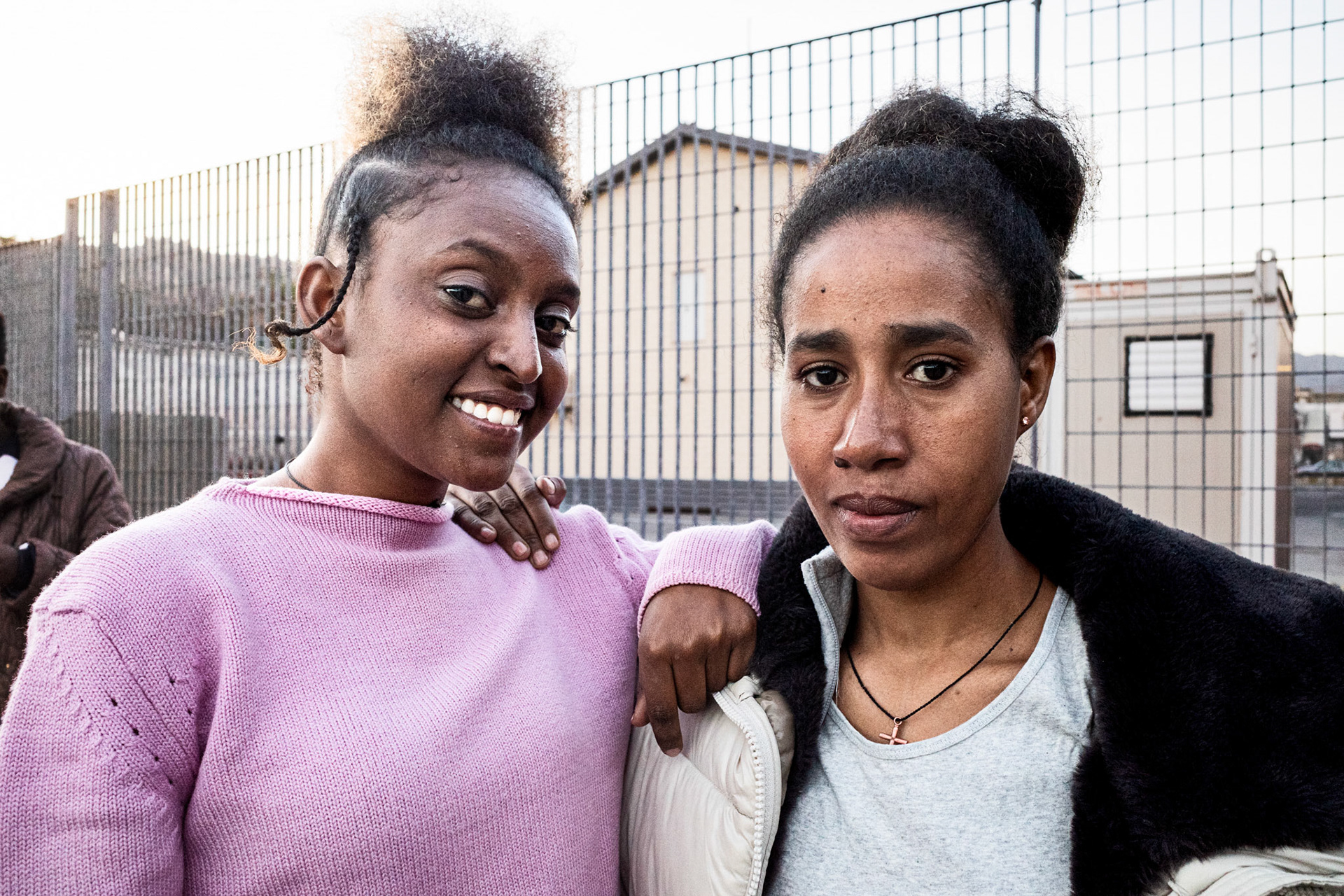
Young Eritrean girls queue for an evening meal distributed by volunteers in the square in front of the Municipal Cemetery. The girls from the Horn of Africa, fleeing forced conscription and civil wars, have been a constant presence in Ventimiglia for years now
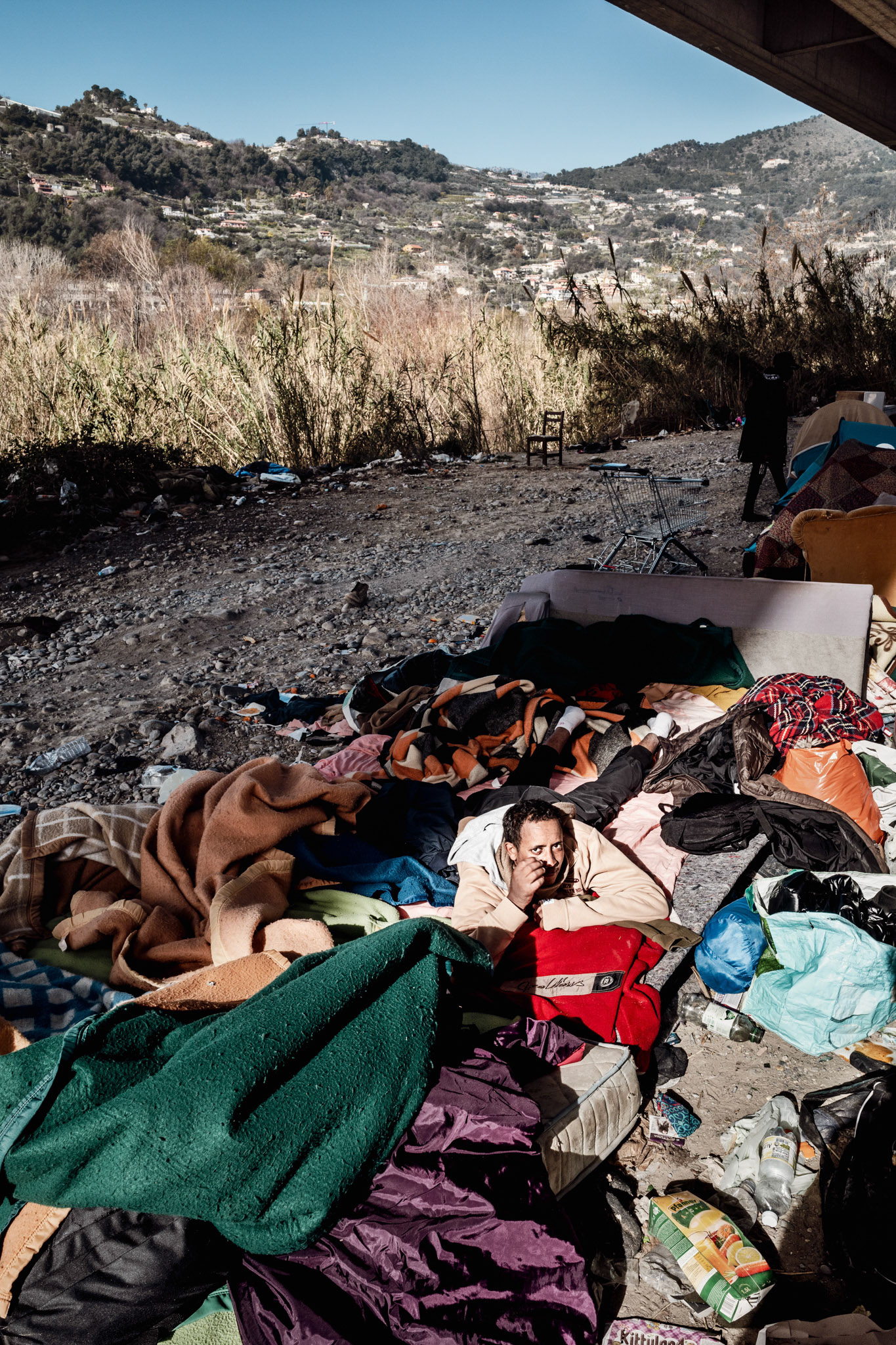
A sunny awakening in the camp under the motorway overpass of Gianchette district, along Roja riverbed. The boy pictured, after a few hours would have crossed the border. The area has been cleared several times in recent years and in November 2020 was completely flooded by storm Alex, as was much of the city centre.
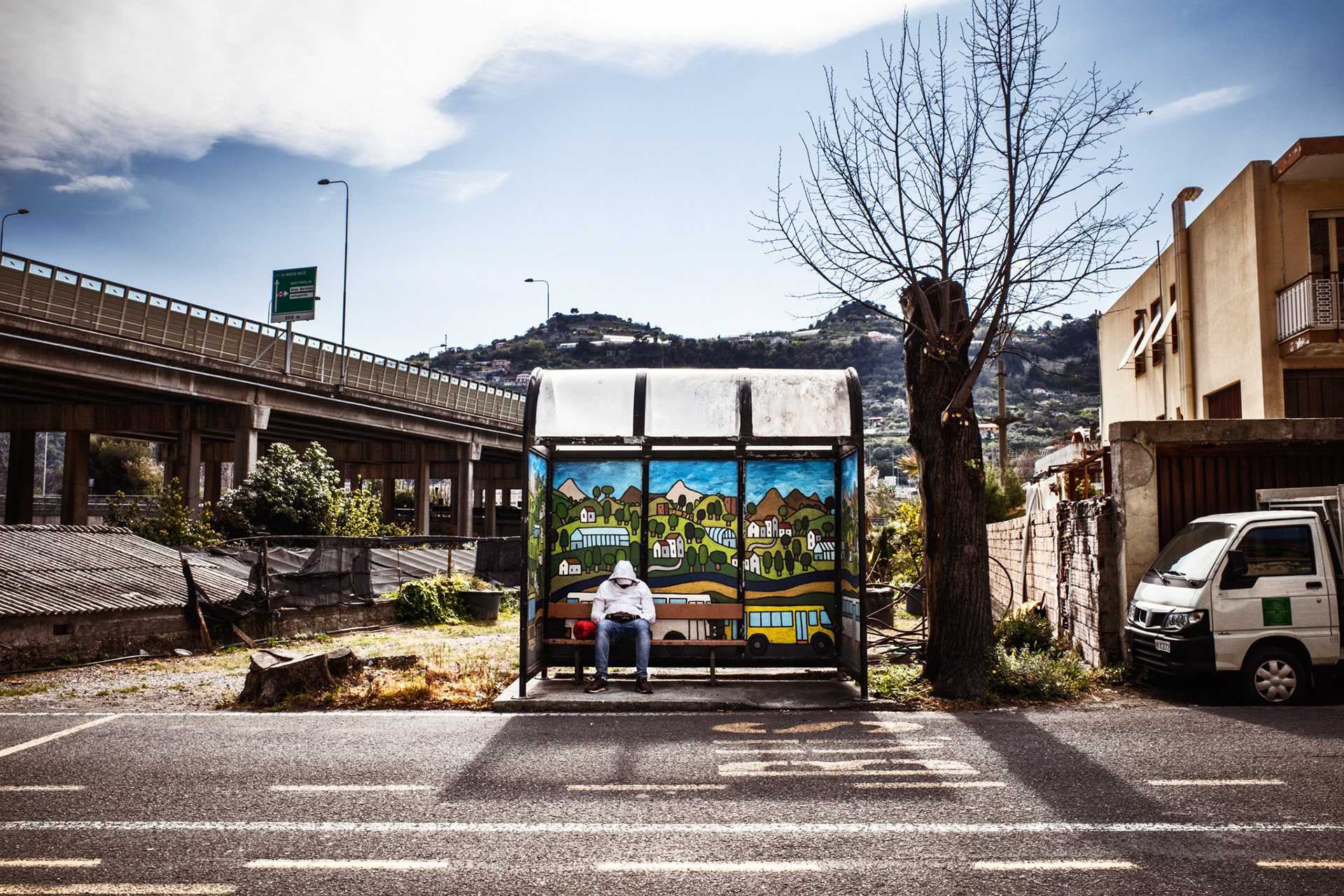
E. (40) , from Ghana is resting at the bus stop in the hamlet of Roverino. In the morning, after eating in the Caritas canteen, he used to beg in front of a supermarket. After a long period in Italy without having made any progress with his life, he decided to go to France.
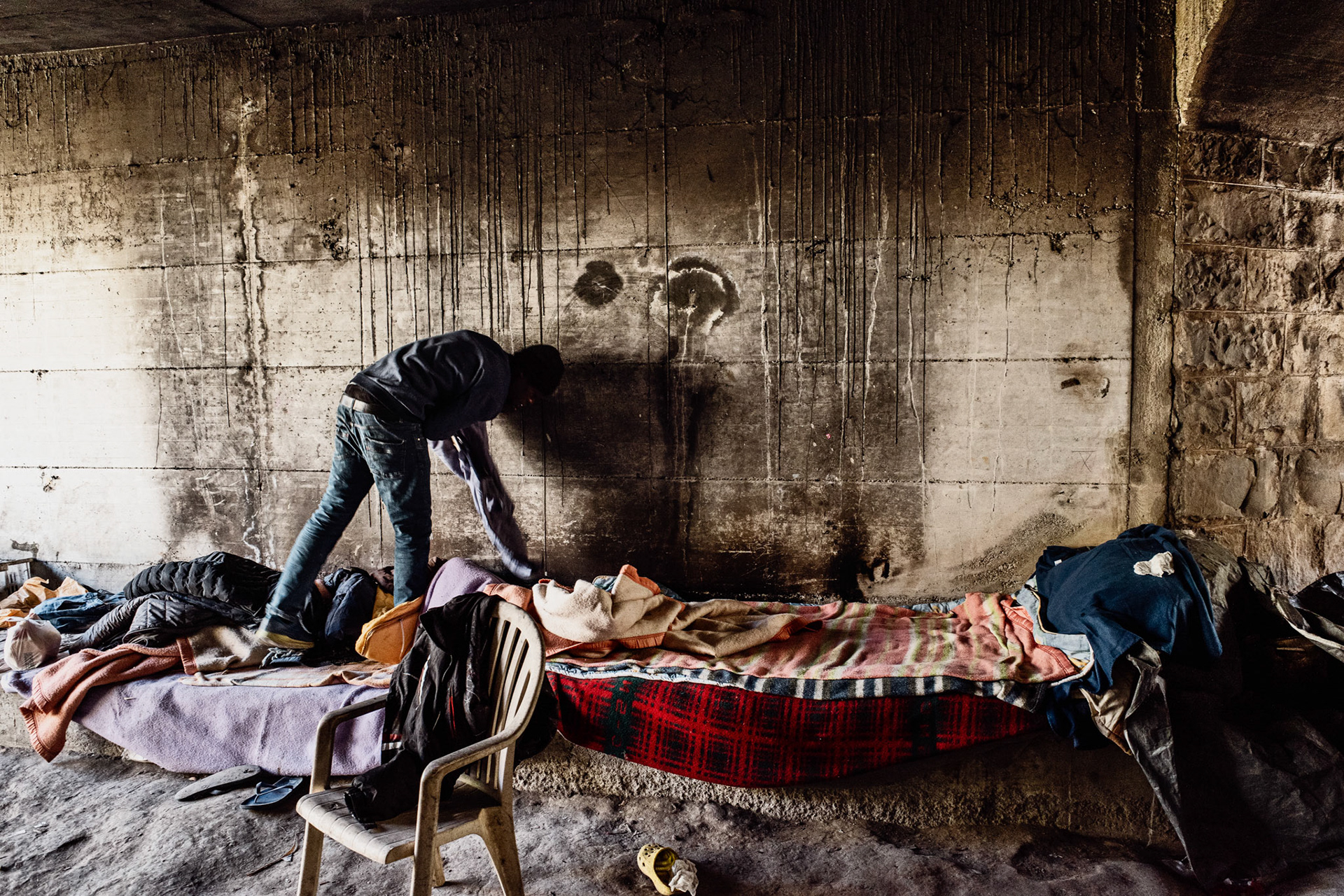
Walking for about 10 minutes along the dead-end track that runs alongside the Ventimiglia - Cuneo railway line, one finds this non-place, a disused water drain. Issa is looking for his missing backpack that contained everything he owned : his documents.
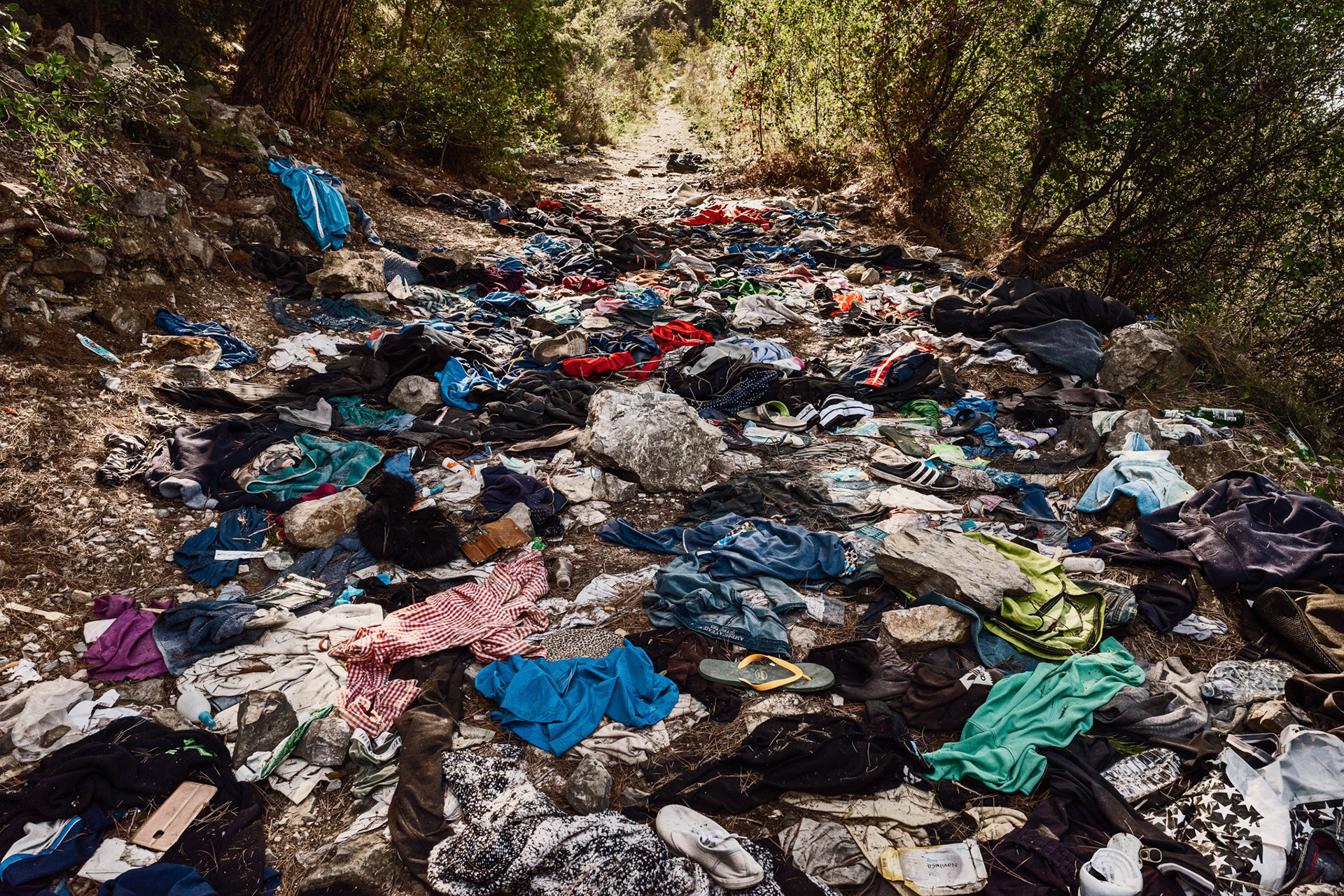
A tragically colourful carpet of clothes at the start of the 'Death Pass' near Grimaldi. This is a mountain path that allows one to cross the French border clandestinely; people on the move often dispose of their belongings shortly before entering France, so that they walk lighter and are less visible to the eyes of the Gendarmerie.
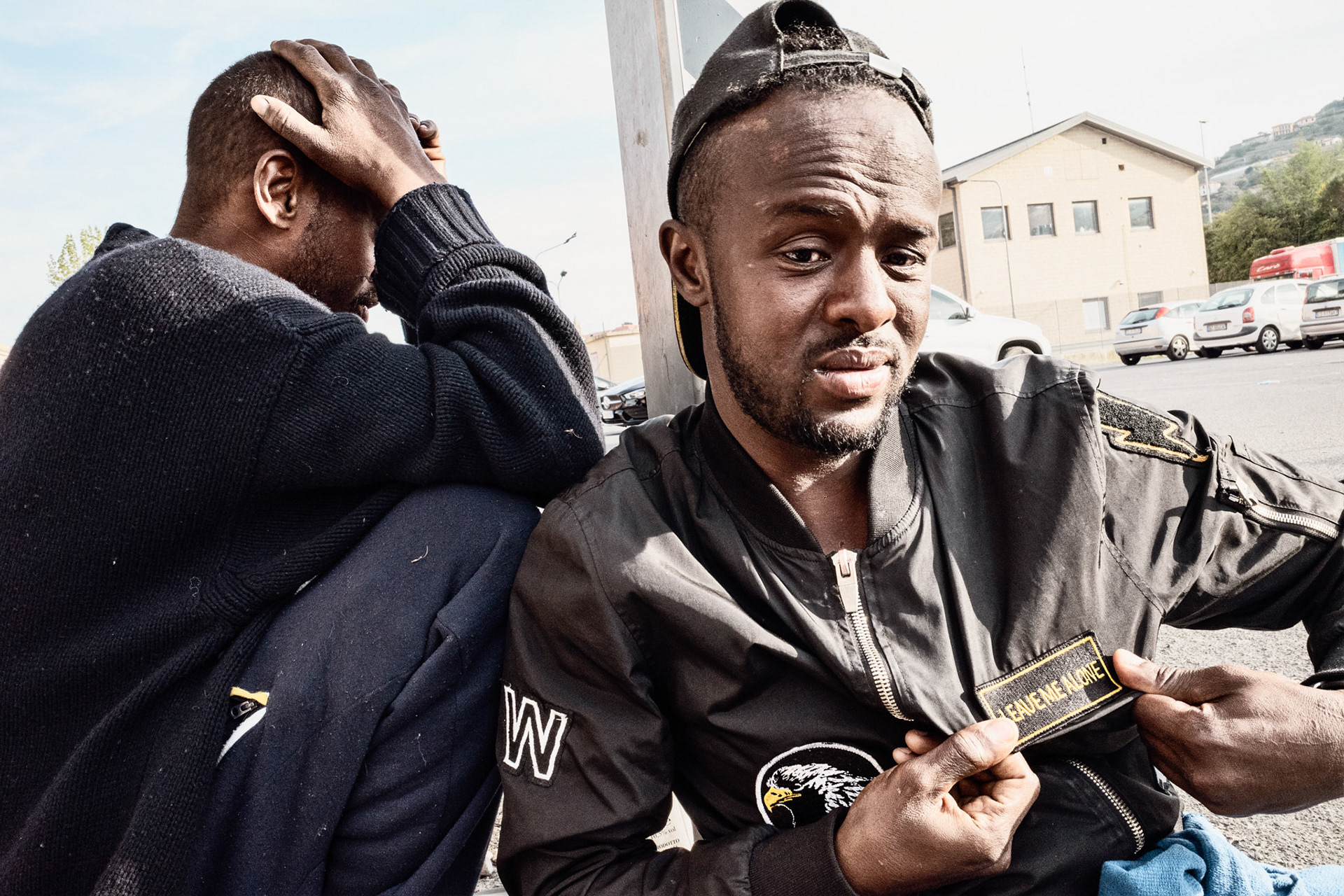
Said, a 27-year-old Somali was plagued by severe trauma and addiction due to various failures in his migration project. At the end of April 2023, he spent his entire days in the car park of a supermarket. After about a month, his lifeless body was found on the Bordighera coastline, possibly as a result of a suicide, or a consequence of his alcoholism. The 'LEAVE ME ALONE' patch sewn on his only jacket was the one element that allowed his remains to be recognised.
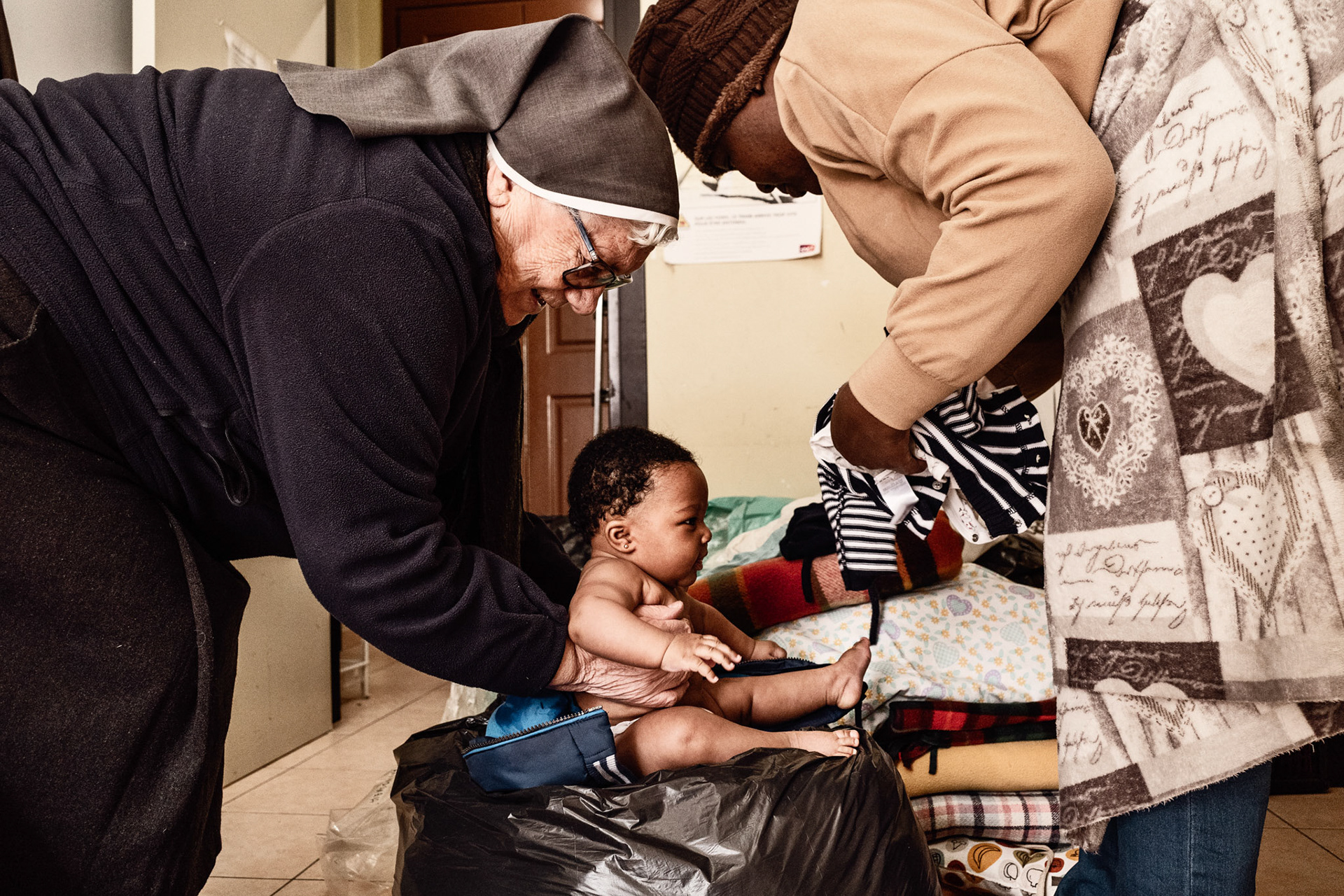
Sister Maria helps an Ivorian mother to dress her baby. Not infrequently, such small children are the children of violence suffered during the journey
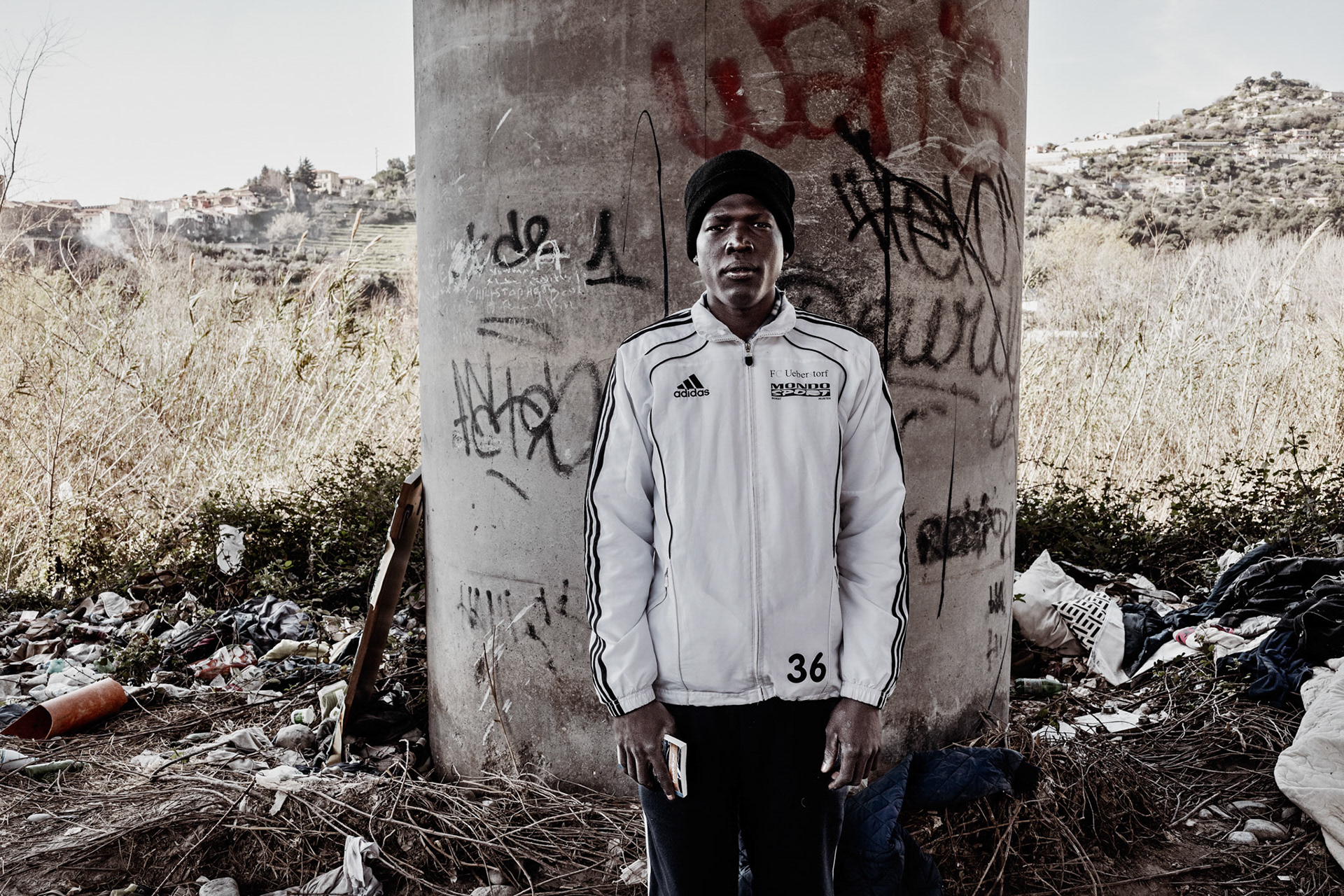
Isac, 18 years old, left South Sudan 10 years ago. A life on the road. He travelled through Ethiopia, Eritrea, up to Libya in a very long desert hike. He asked me to take this picture of him, which I never managed to give to him as he left the next day.
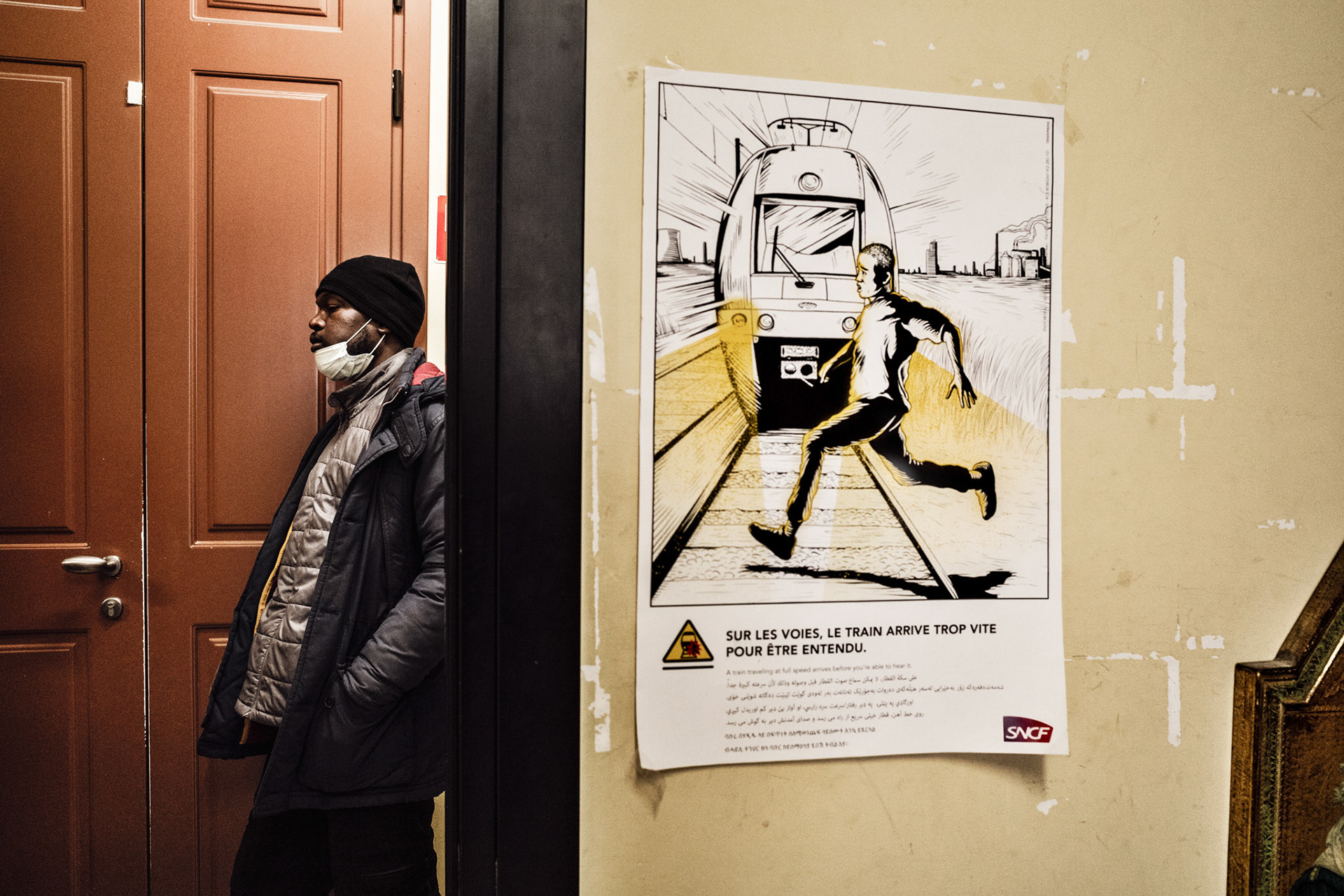
Issa waits his turn at the clothing distribution at Caritas Intemelia. On the wall a poster raising awareness on the risks of crossing the border by SNCF, the French railway company. Since 2015, numerous migrants have died (around 50) or been seriously injured while marching on the railway line or climbing onto the roofs of trains.
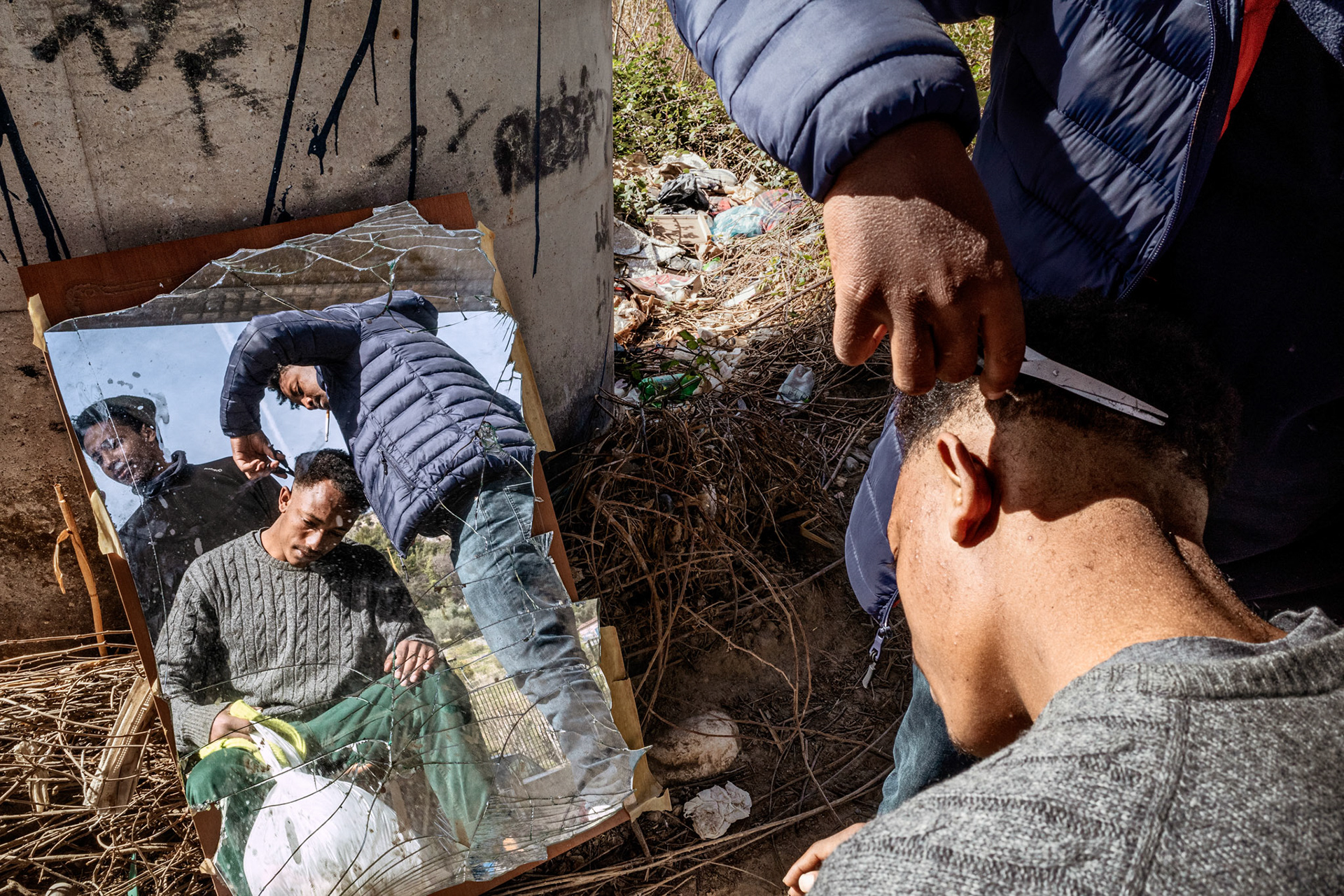
Despite the difficult hygienic and sanitary conditions and absolute poverty in which they find themselves in, care for personal appearance is not neglected, at least in the youngest trying to give themselves a semblance of dignity. The boy with scissors pictured in the photo was a professional barber in Ethiopia, his home country.
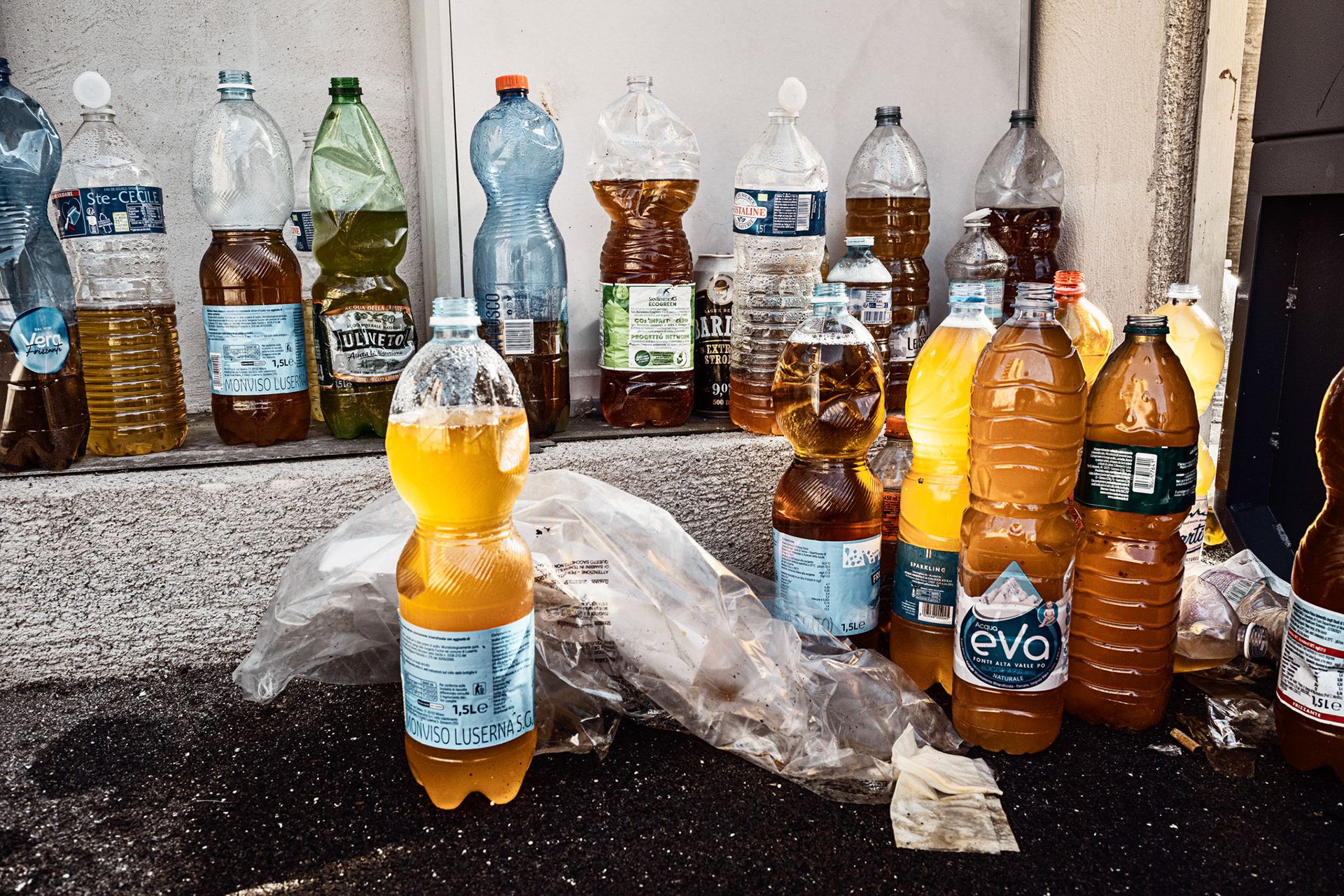
Bottles full of urine used as toilets. The issue of access to water and sanitation is one of the major unresolved problems since the closure of the Roya camp (the transit centre was closed in 2020)
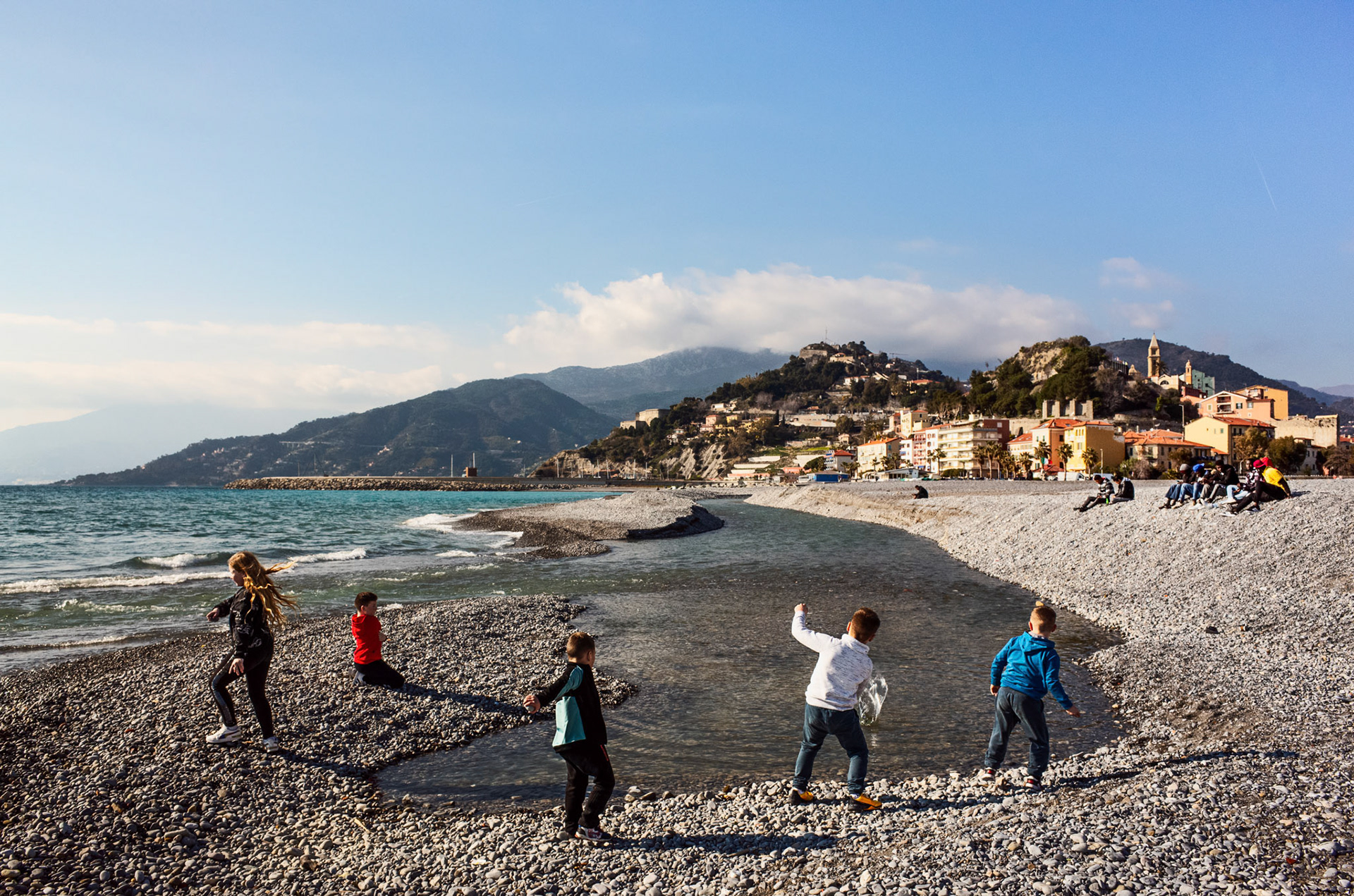
The Roya River originates in French territory, at the Col de Tende, and flows into Italy at Ventimiglia. The river mouth is a place frequently visited not only by tourists and families but also by migrants. From here, France is clearly visible.
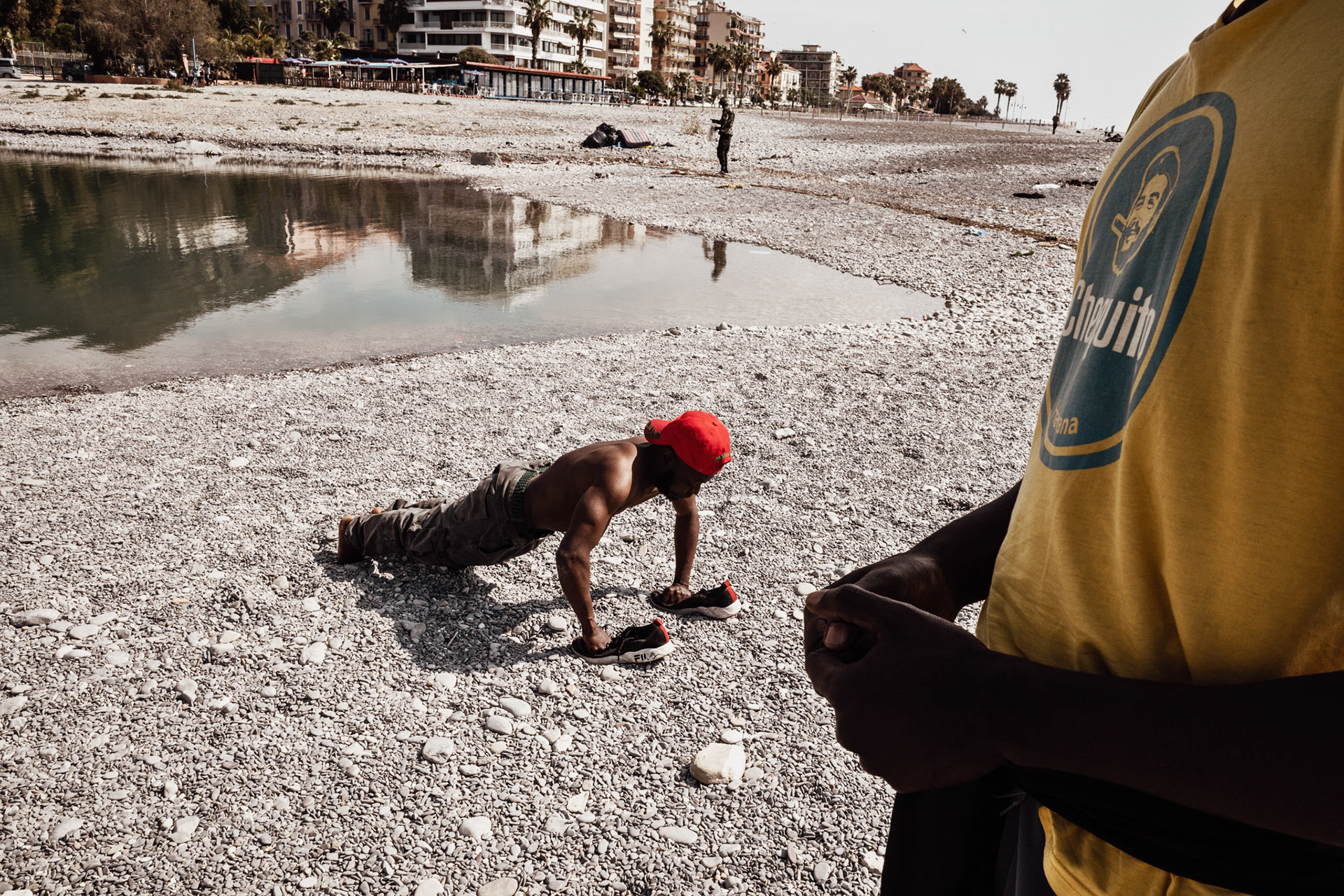
One of the main hangouts is the mouth of the Roja river. Here migrants spend entire days, cooking, doing exercise, washing themselves and their clothes. This “non-place”, often the site of clashes, is also frequented by traffickers and petty criminals.
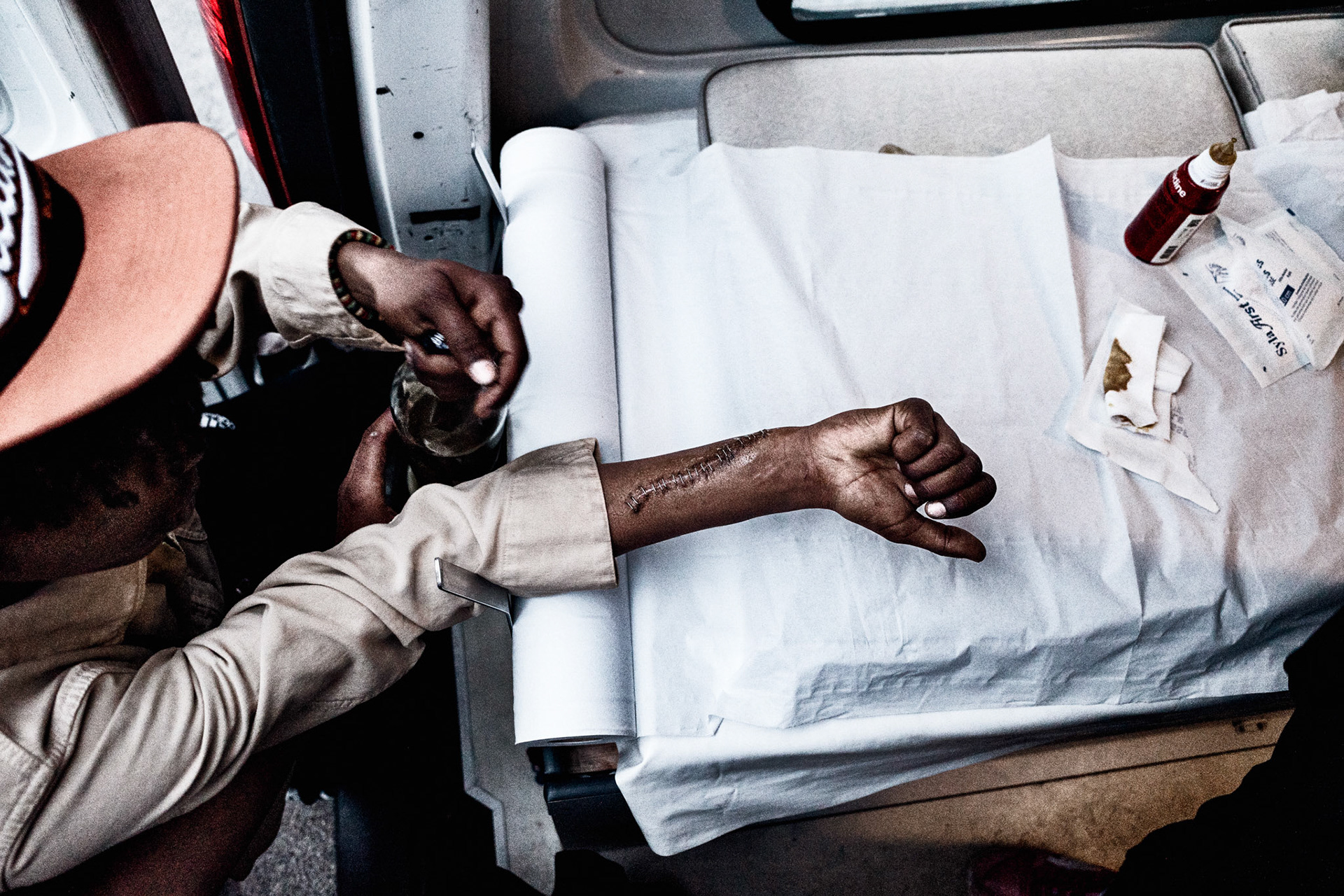
Finally, after a long time A., a young Somali is persuaded to have his 'do-it-yourself' stitches removed by the medical staff of the Medici del Mondo mobile clinic. The wound was caused by a broken bottle during an attack.
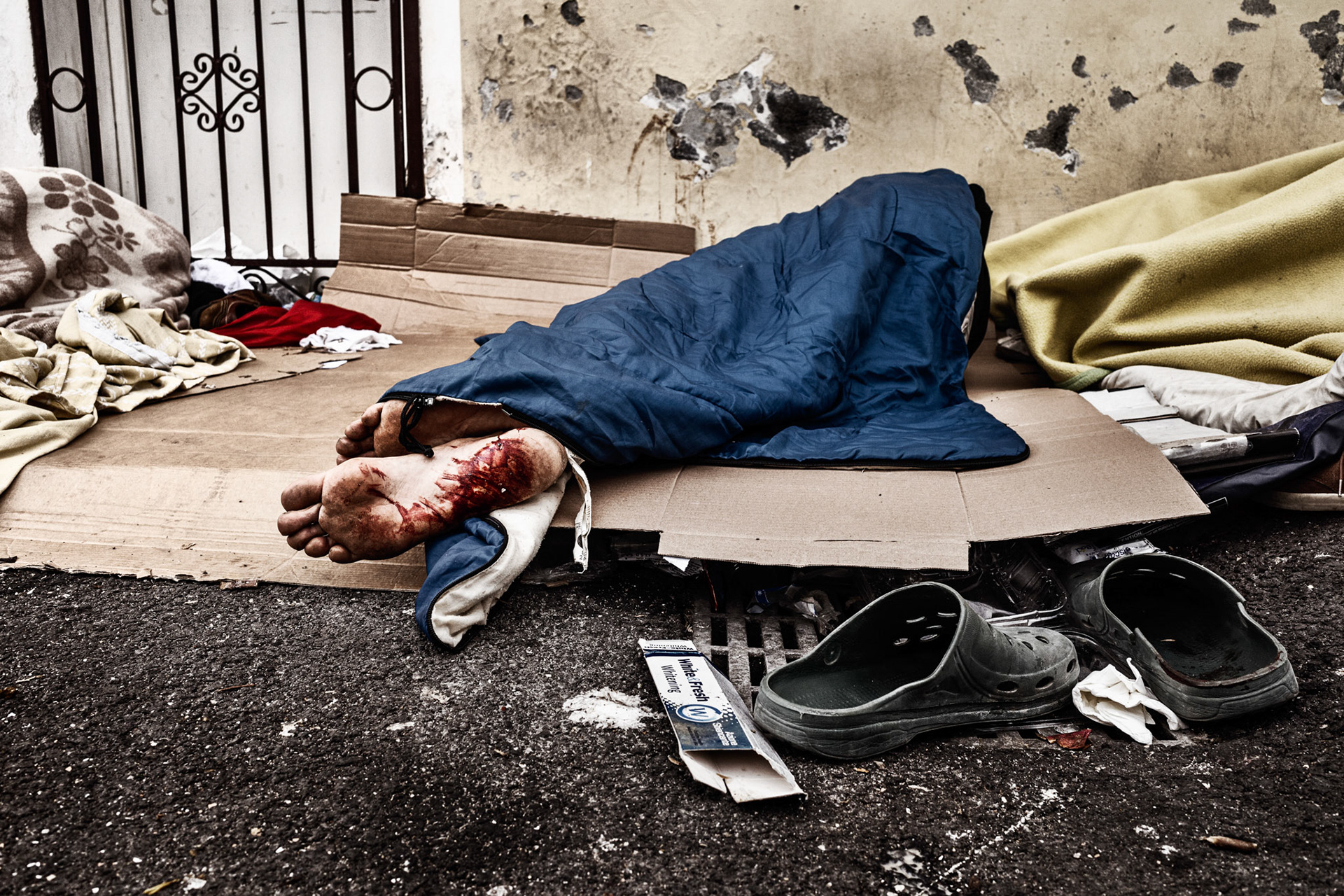
Evident signs of a troubled journey and night. This young Tunisian, having spent the night sleeping on some cardboard boxes, will be treated in the dispensary of Caritas Intemelia after waking up.
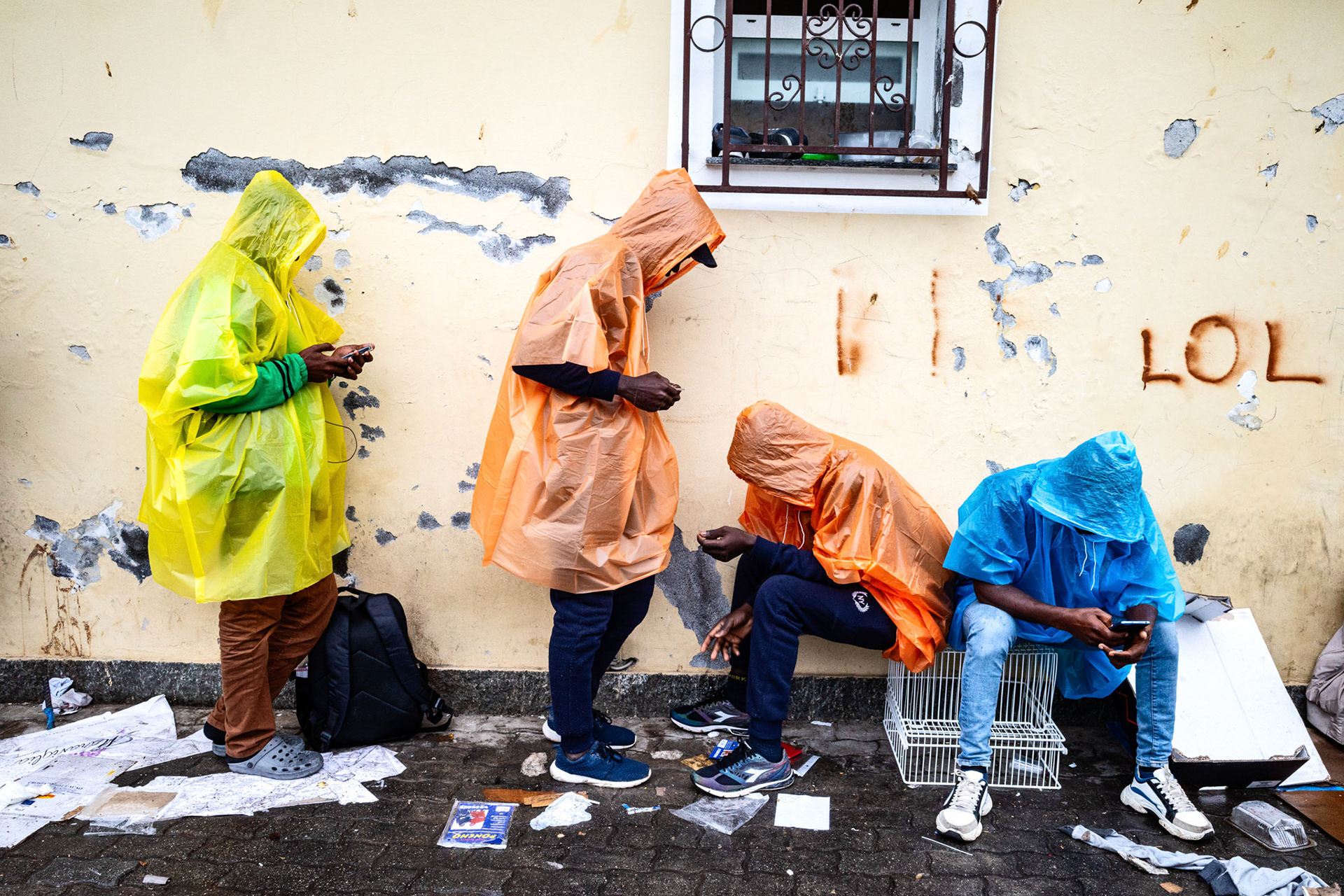
Moments of waiting on a rainy morning, in the square in front of Caritas Intemelia.
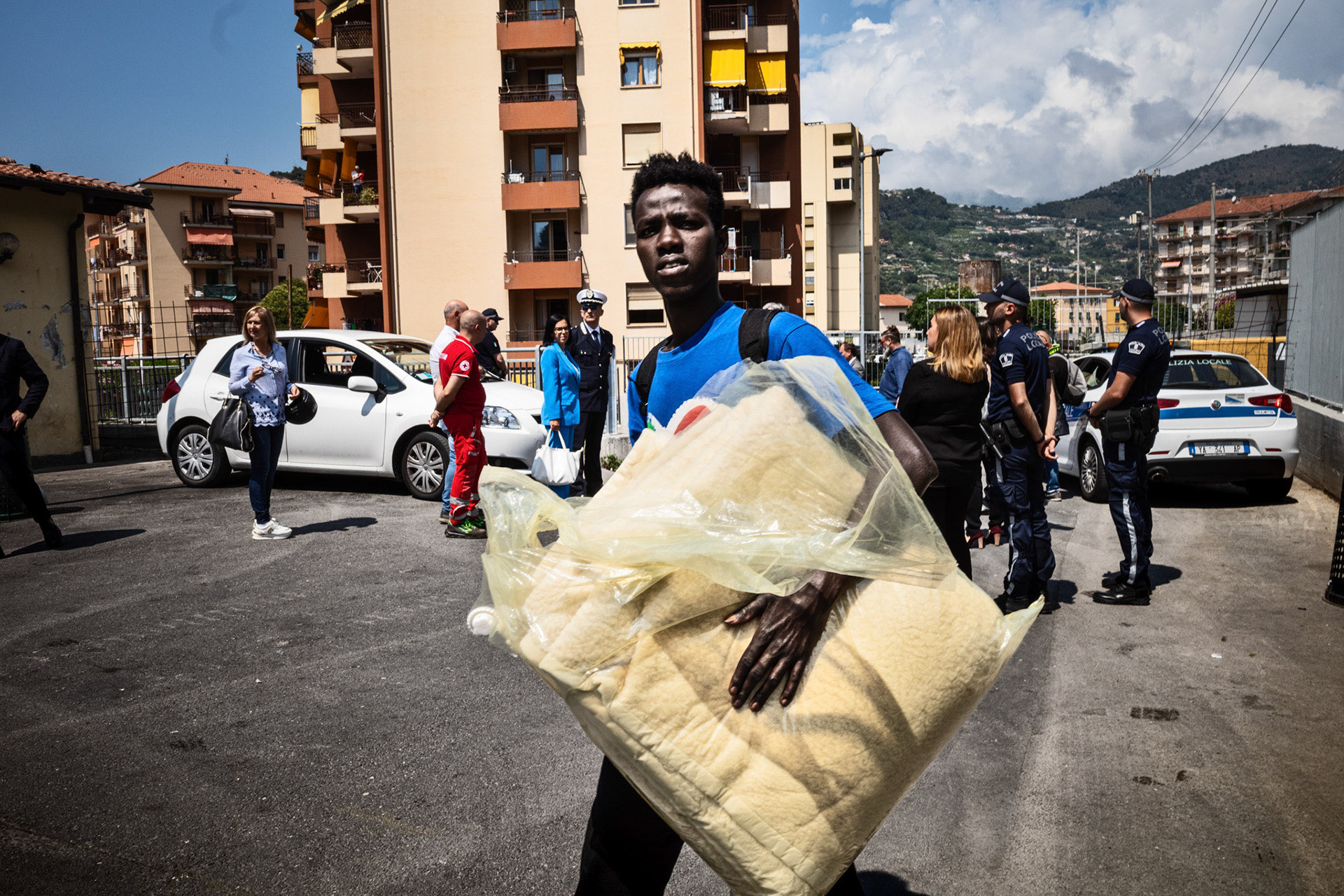
A young migrant has just collected a blanket at the clothing distribution point. Meanwhile, law enforcement officers, journalists, and representatives of the Institutions are awaiting the arrival of the new Prefect
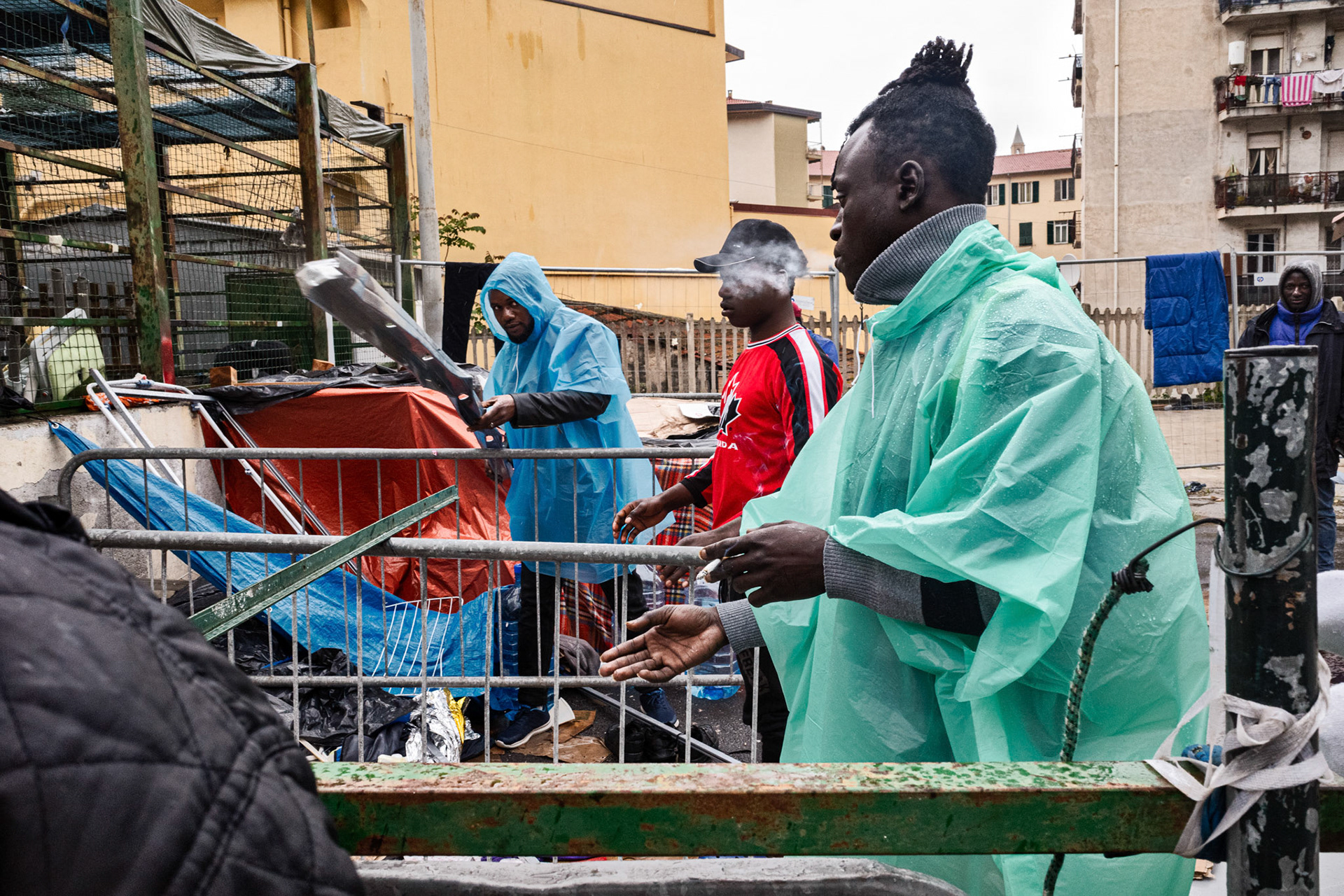
The reconstruction of an informal camp shack by French-speaking migrants. A team effort that had to be repeated daily, due to the difficult weather conditions in spring 2023
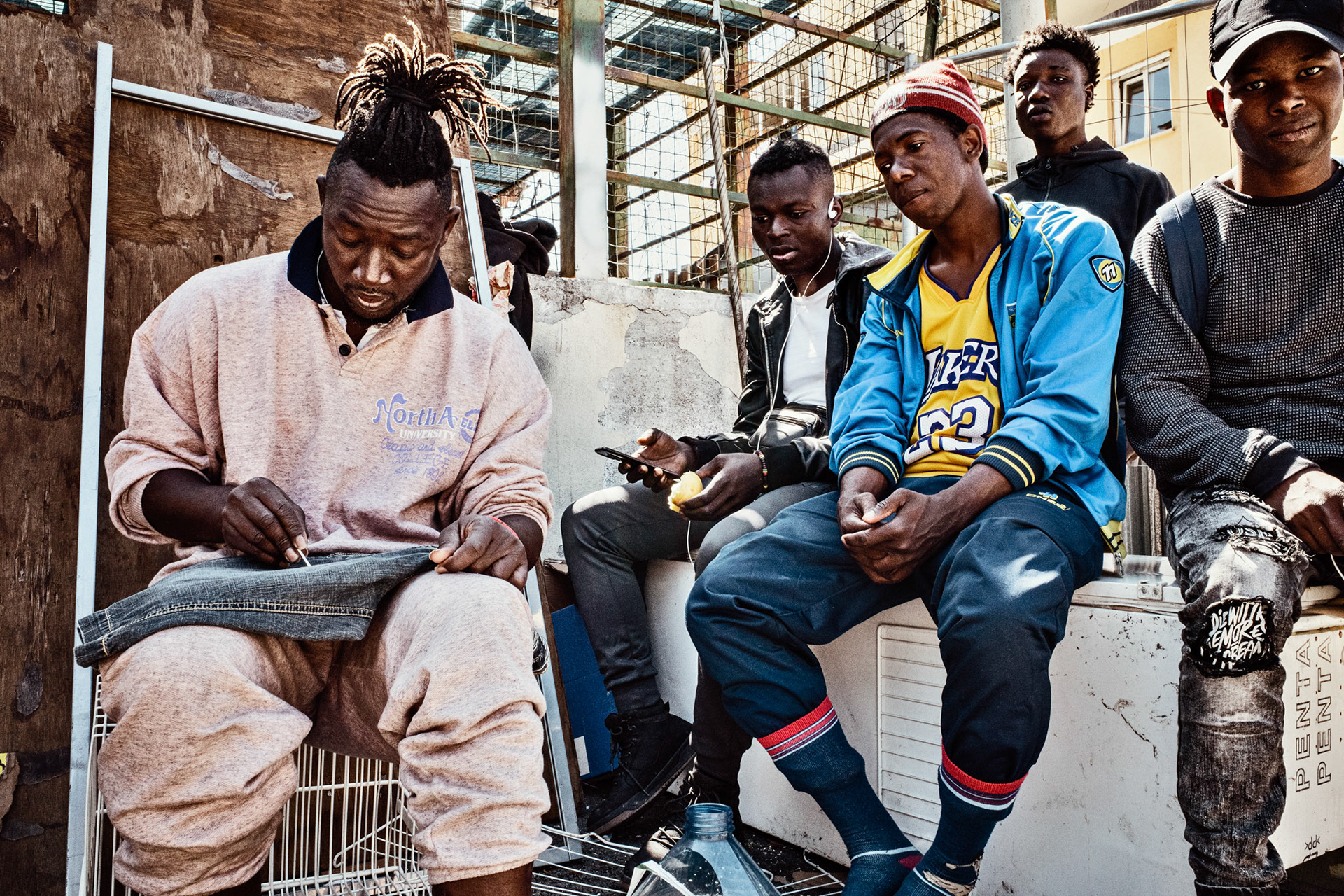
A. is writing his name on a pair of trousers, using a cotton bud soaked in bleach. The young boys at his side are sitting on a refrigerator found abandoned near the rubbish bins used as a wardrobe for blankets and clothes. These teenagers, originally from Guinea and the Ivory Coast, spent a very long time in Ventimiglia, waiting for the opportunity and the money to cross the border.
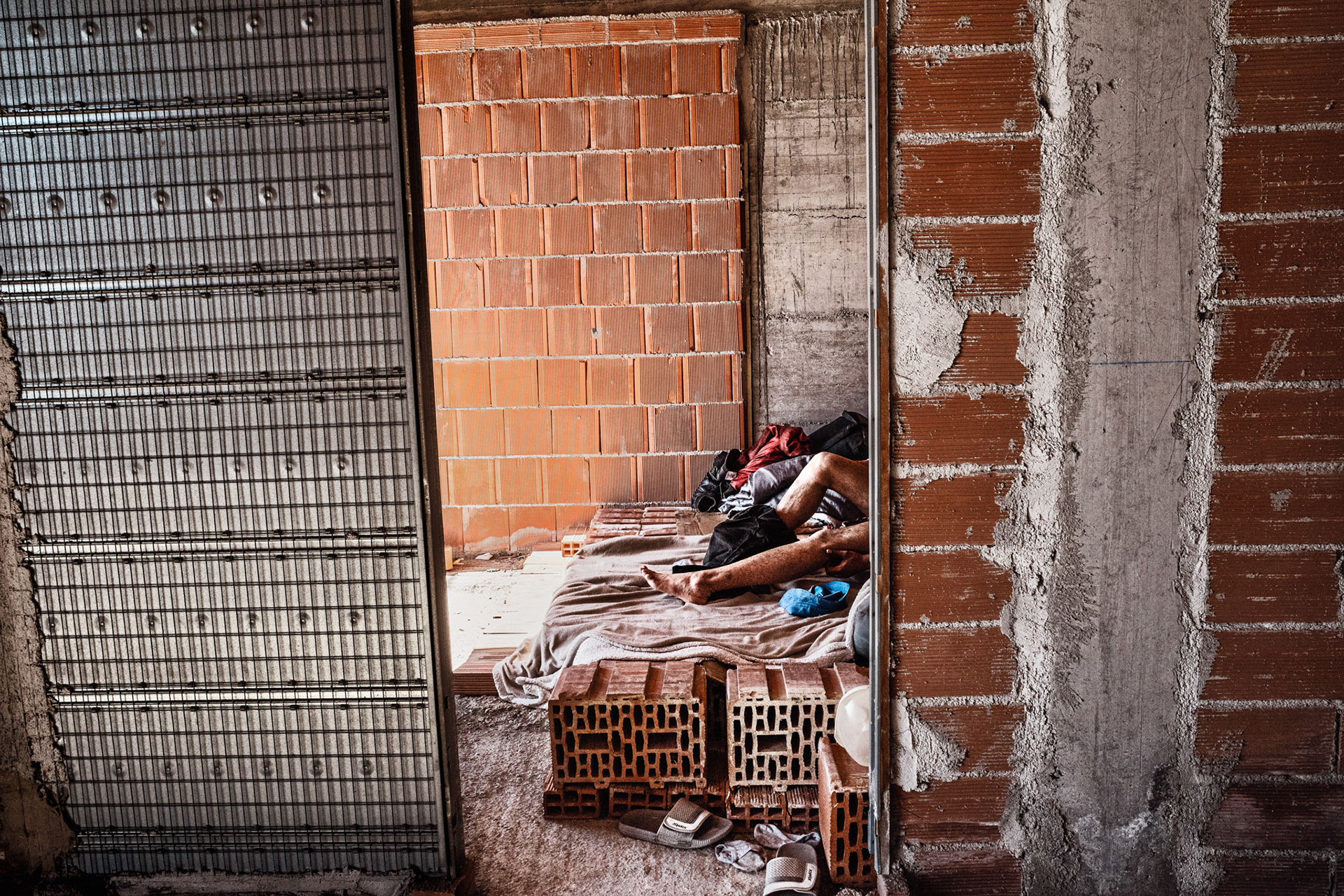
H., a 23-year-old Pakistani, shows me his shelter. 'This is my house' he tells me proudly at the entrance of the abandoned house. The boy set off from his country full of enthusiasm, helped to expatriate by his mother in secret, but was forced to halt his long journey in Ventimiglia, where he lived for a long time as a homeless man.
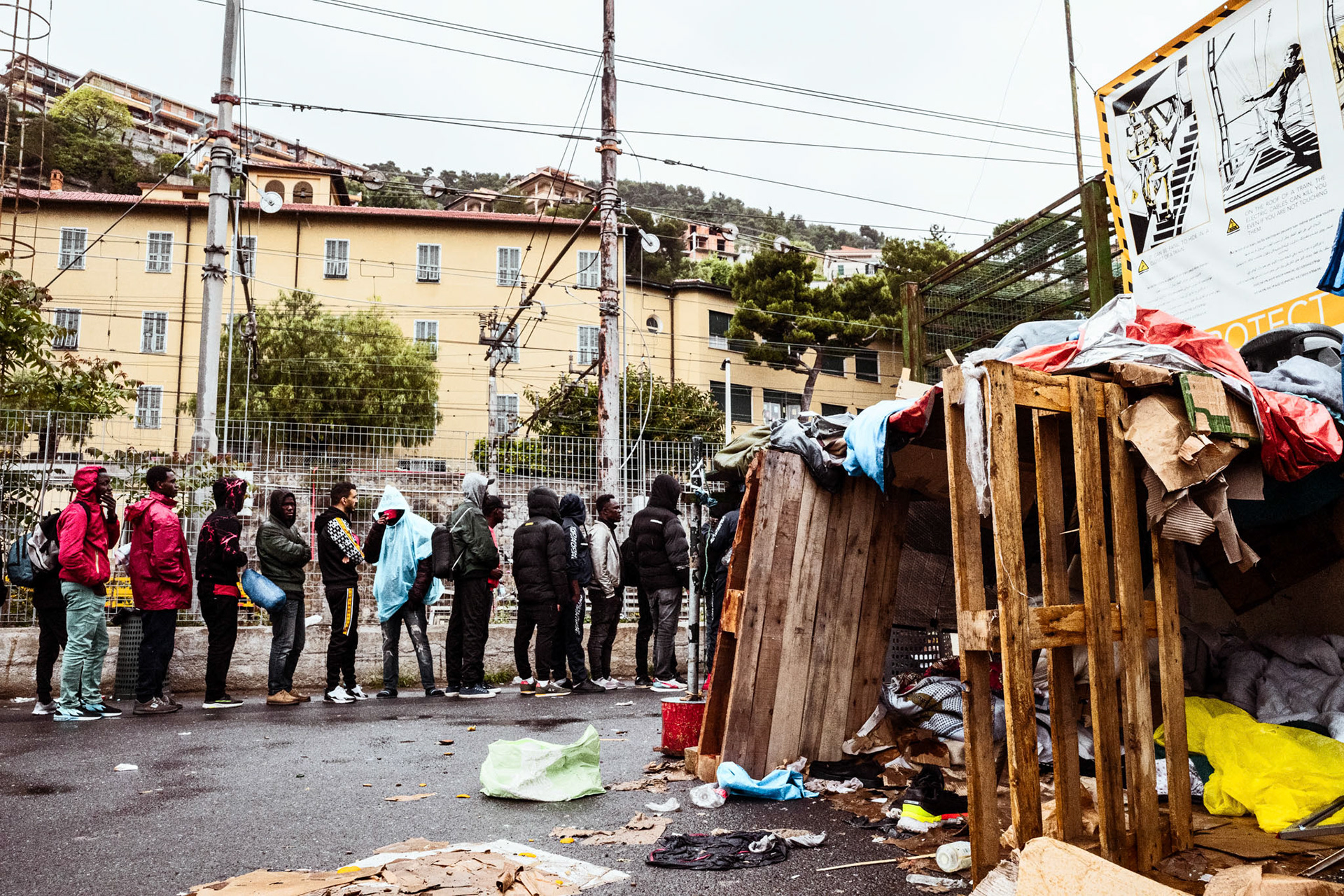
The queue for the canteen meal distribution. On the right, a shack built by some young men from Guinea in transit.
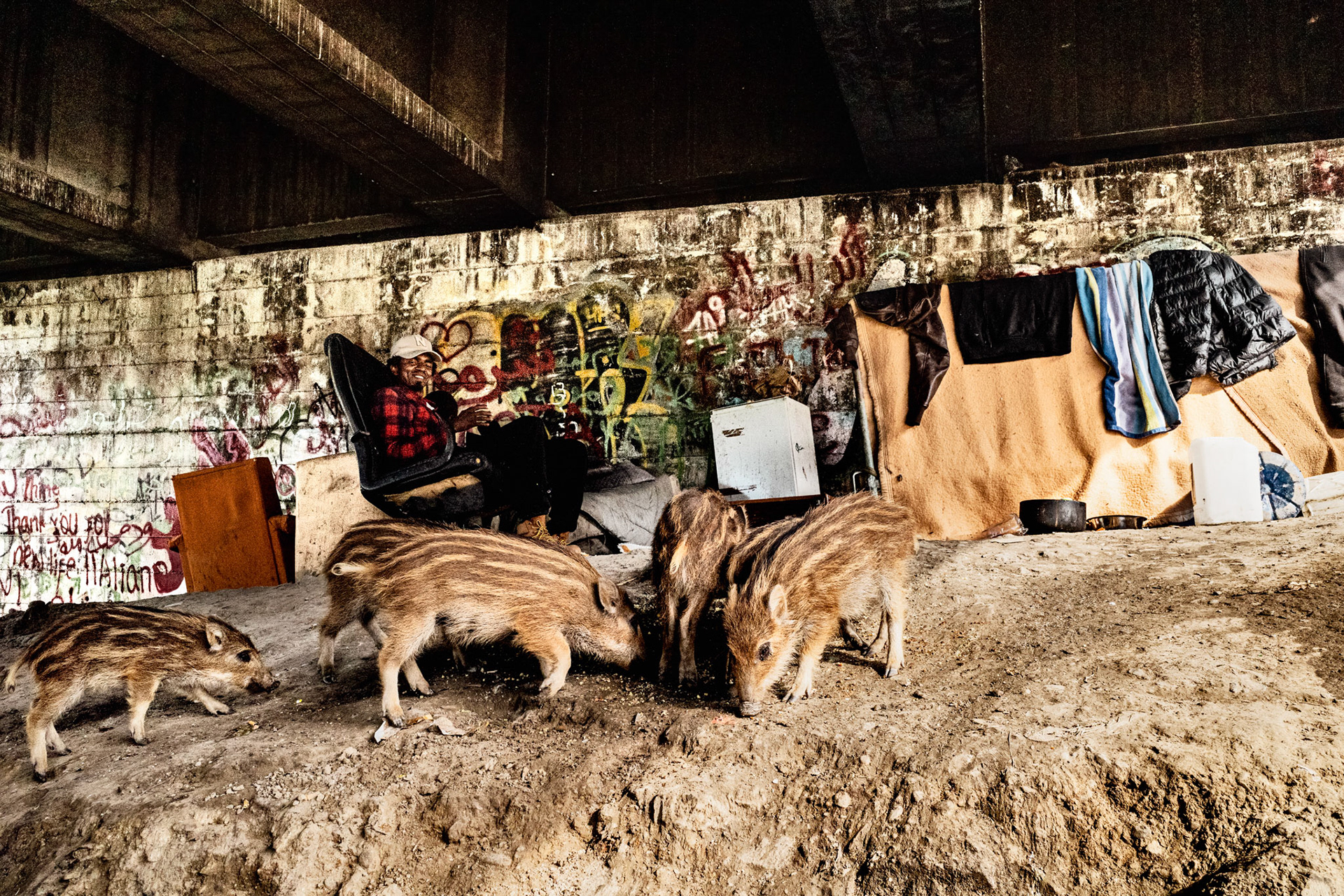
These wild boar cubs roamed undisturbed with their mothers in the vast camp along the Roja river in search of food. They were often fed with scraps and respected by the majority of people (mostly of the Islamic religion).
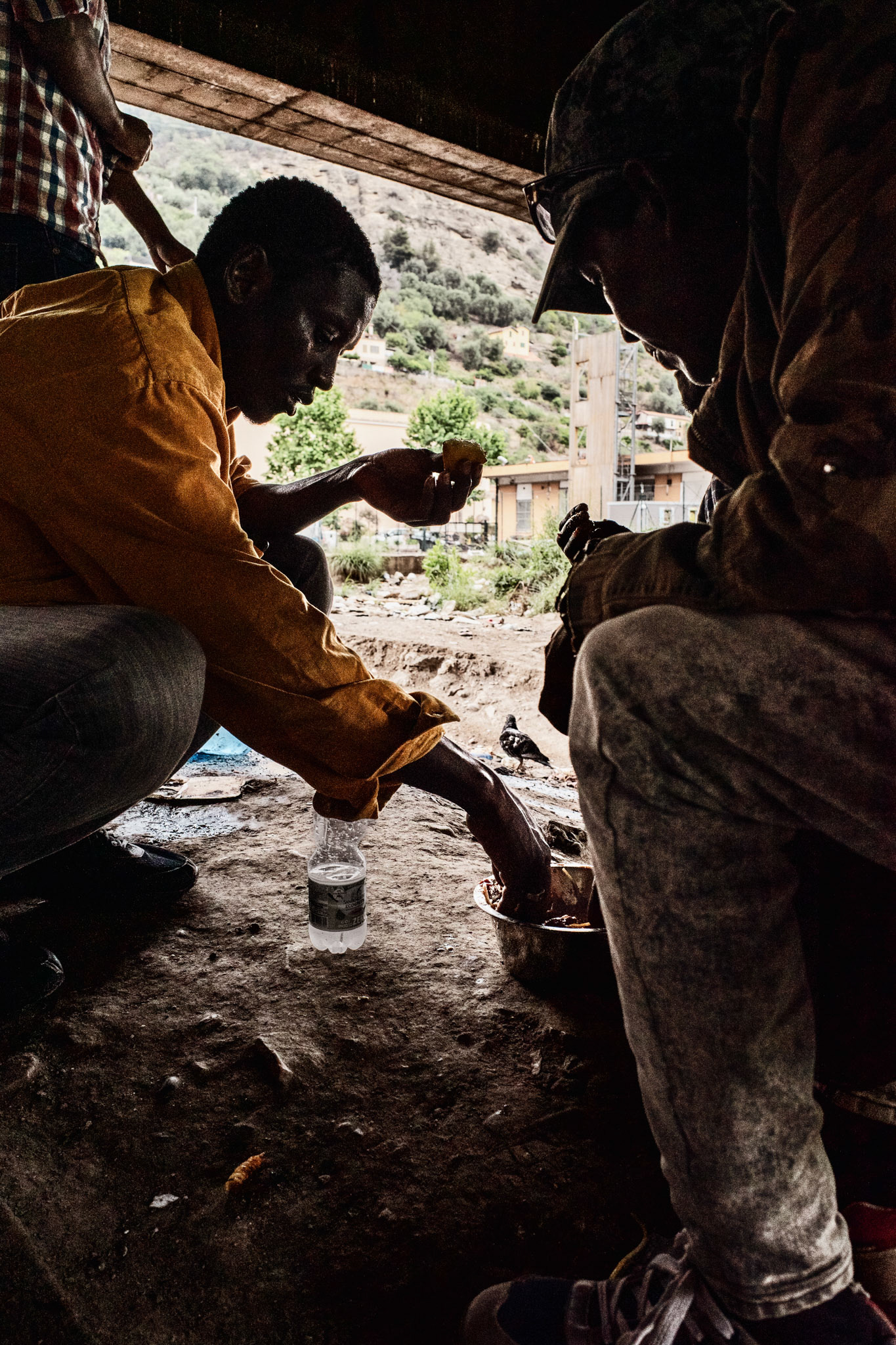
Some young people have lunch in the camp in front of the municipal cemetery
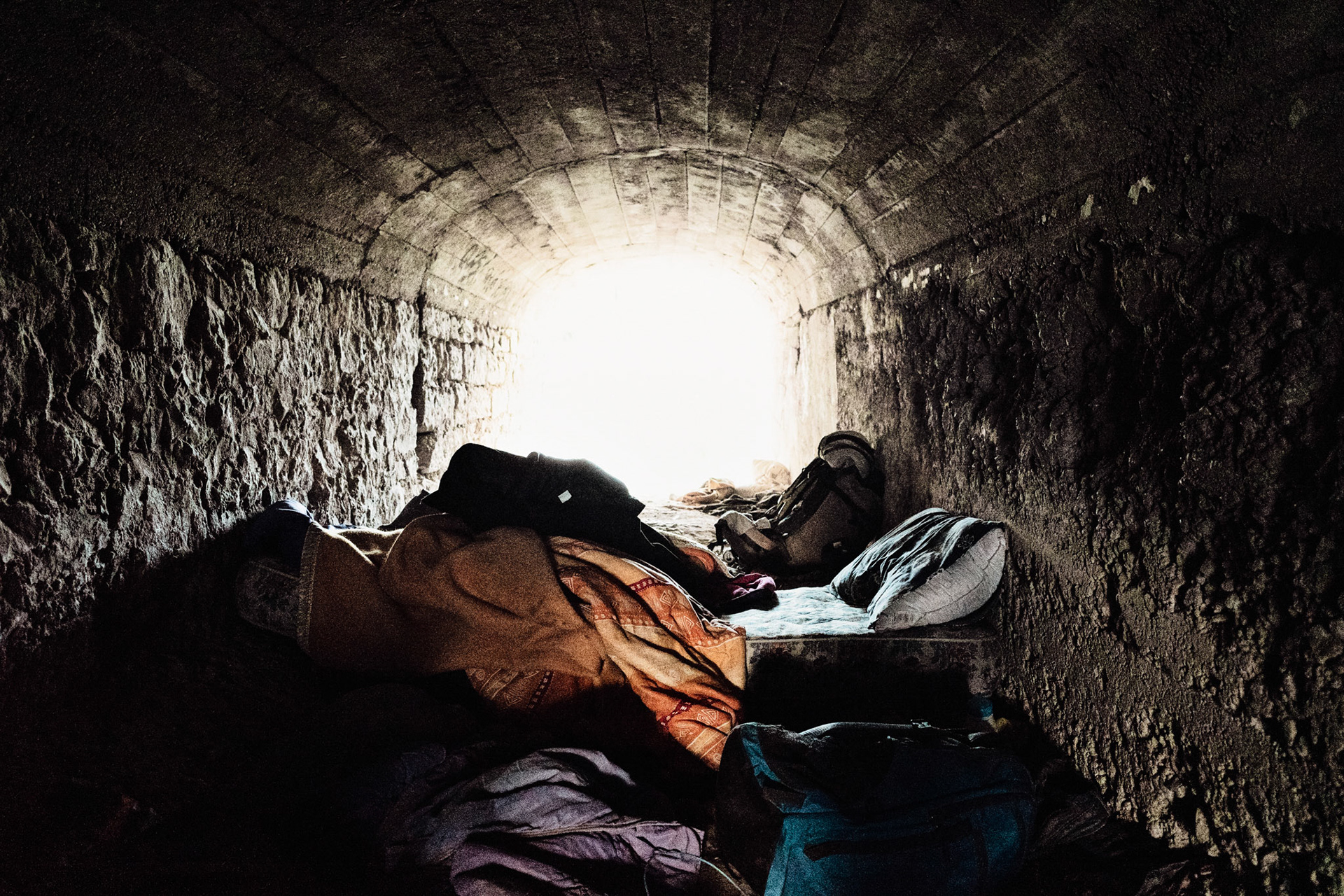
This camp is located in one of the tunnels that cross the railway bridge from Ventimiglia to France and Cuneo. It is a dark and gloomy place but it is considered safe for being in the shade and away from prying eyes.
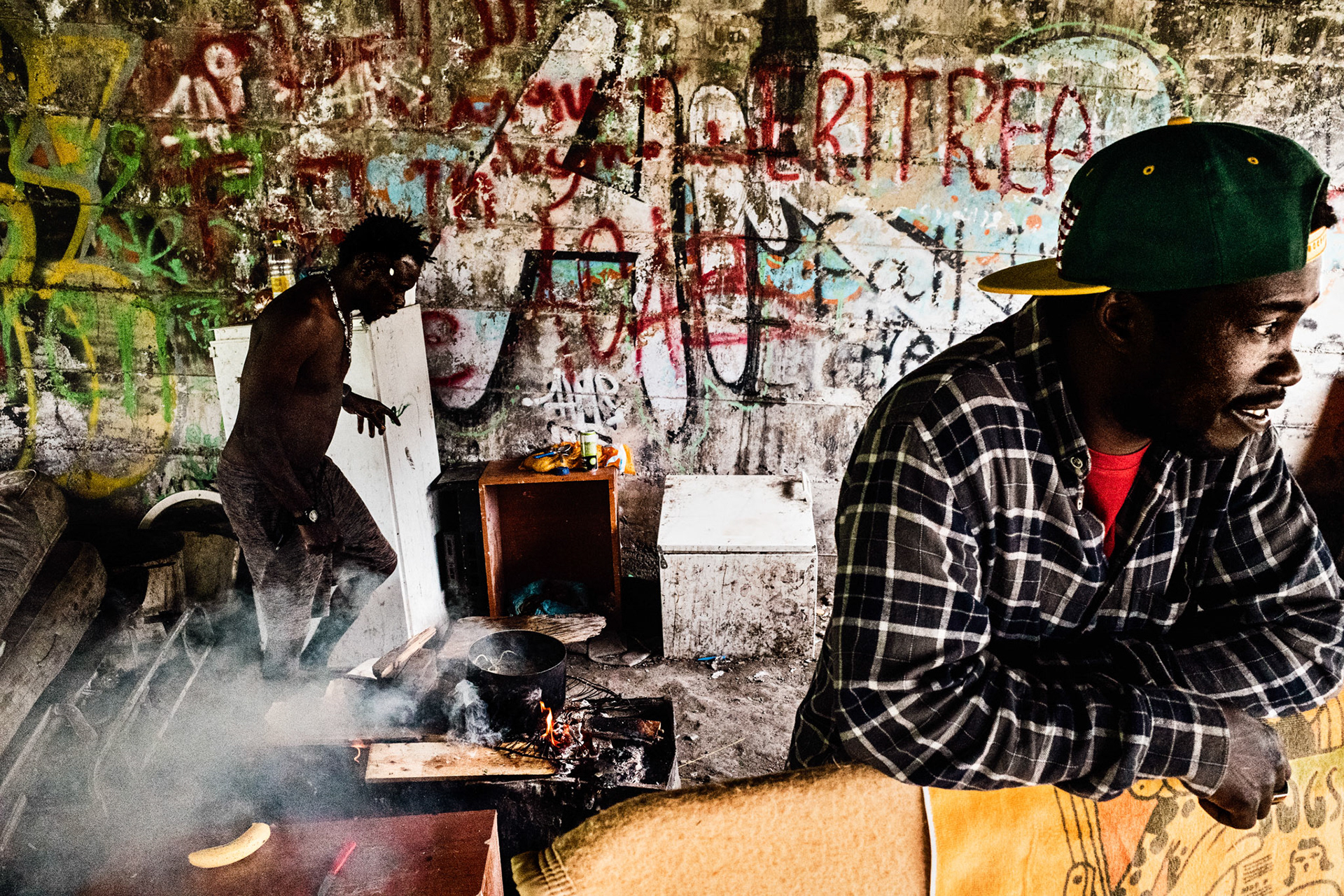
A moment of ordinary everyday life in the camp under the flyover. These boys are preparing lunch with money scraped together after begging in the supermarket car park. Water for cooking is taken from the cemetery with large plastic bottles.
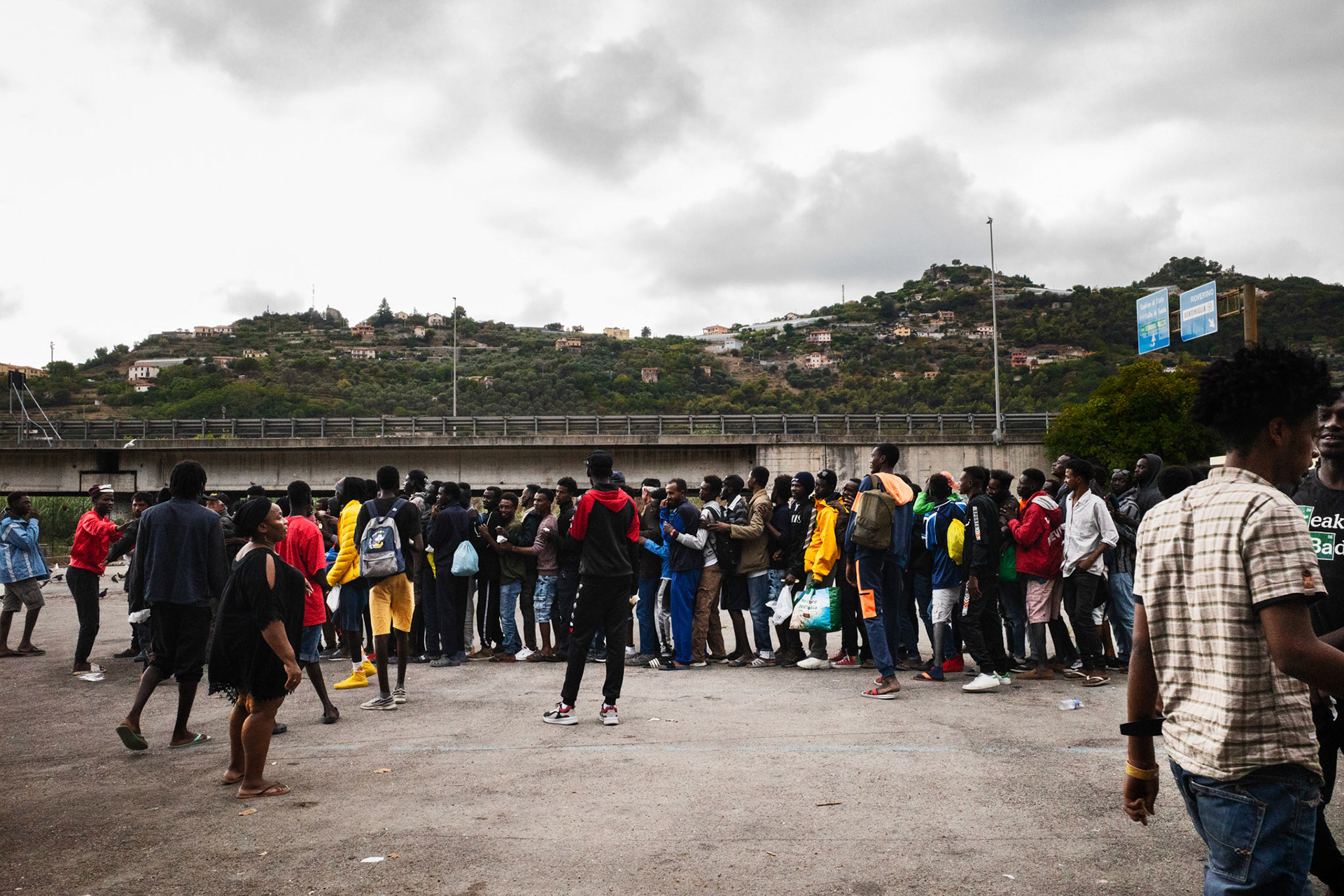
The long queue for the food distribution in September 2023. Over 200 people, all young men, huddled in the square in front of the municipal cemetery. The lady on the left, a volunteer from Nice, is trying to resolve a difficult situation.
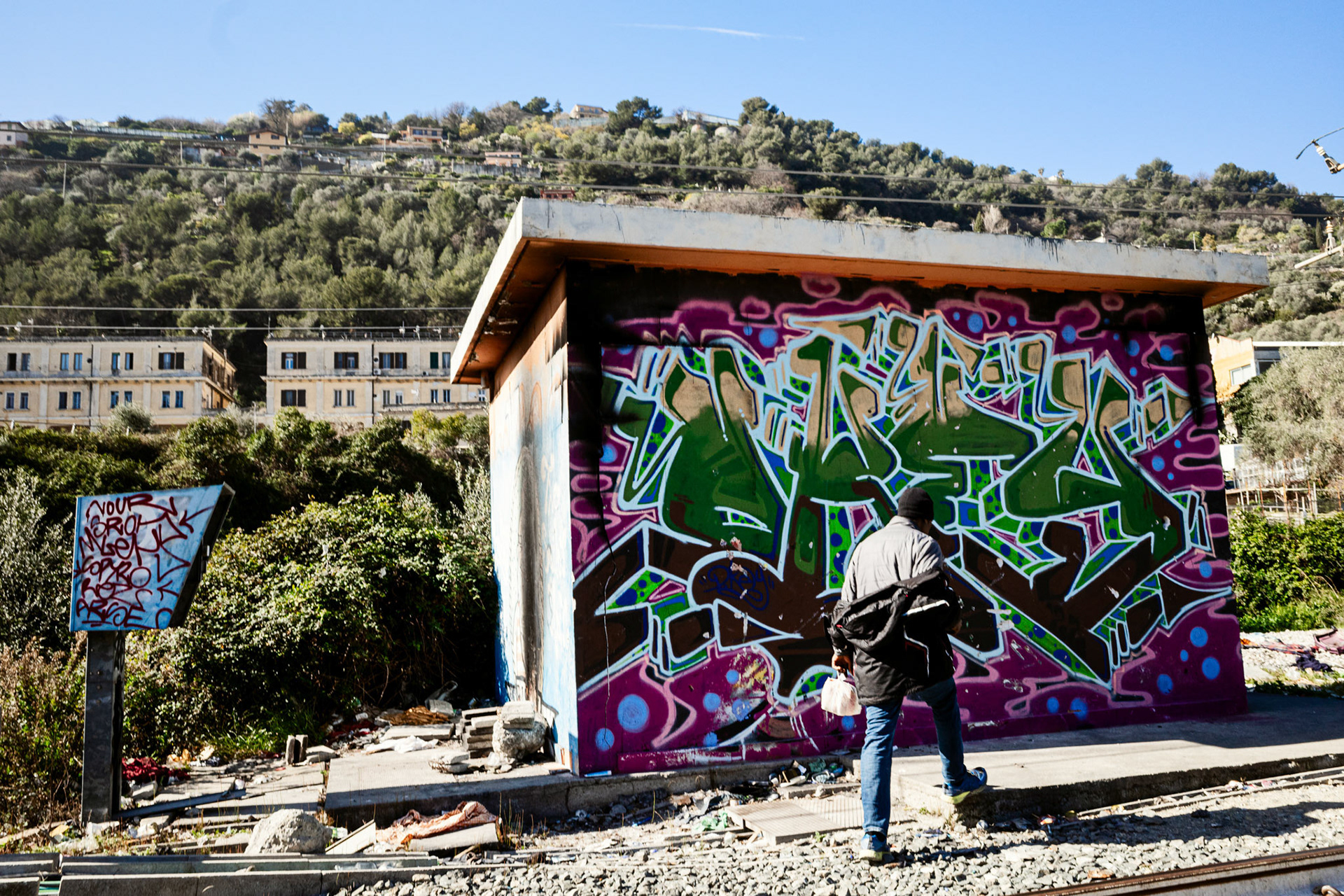
An abandoned electrical cabin along the Ventimiglia-Cuneo railway line, used as a dormitory, destroyed by a fire.
